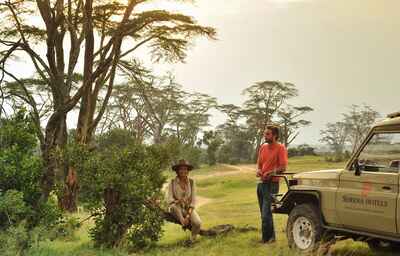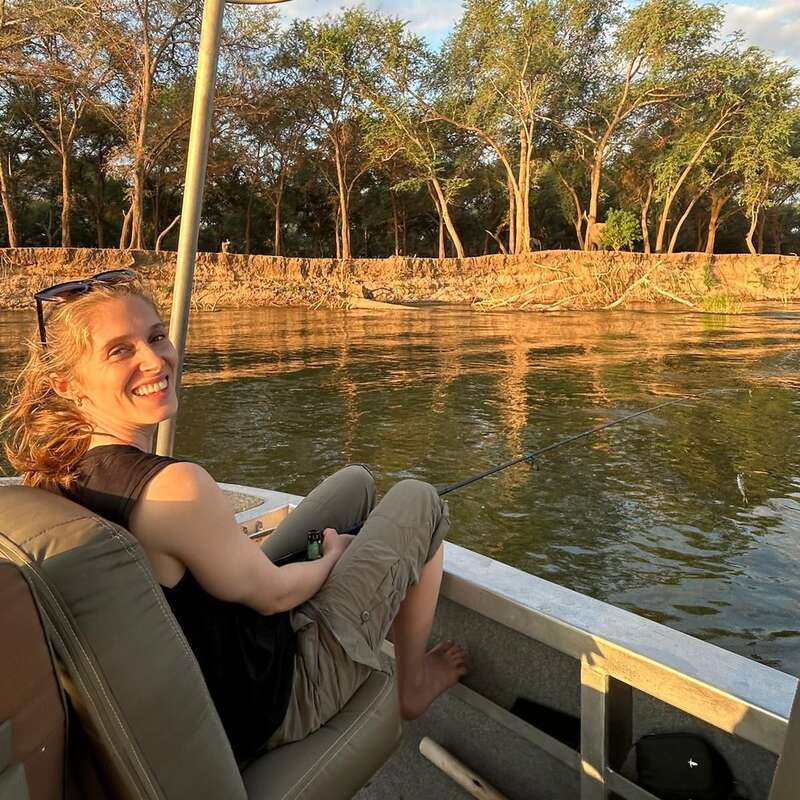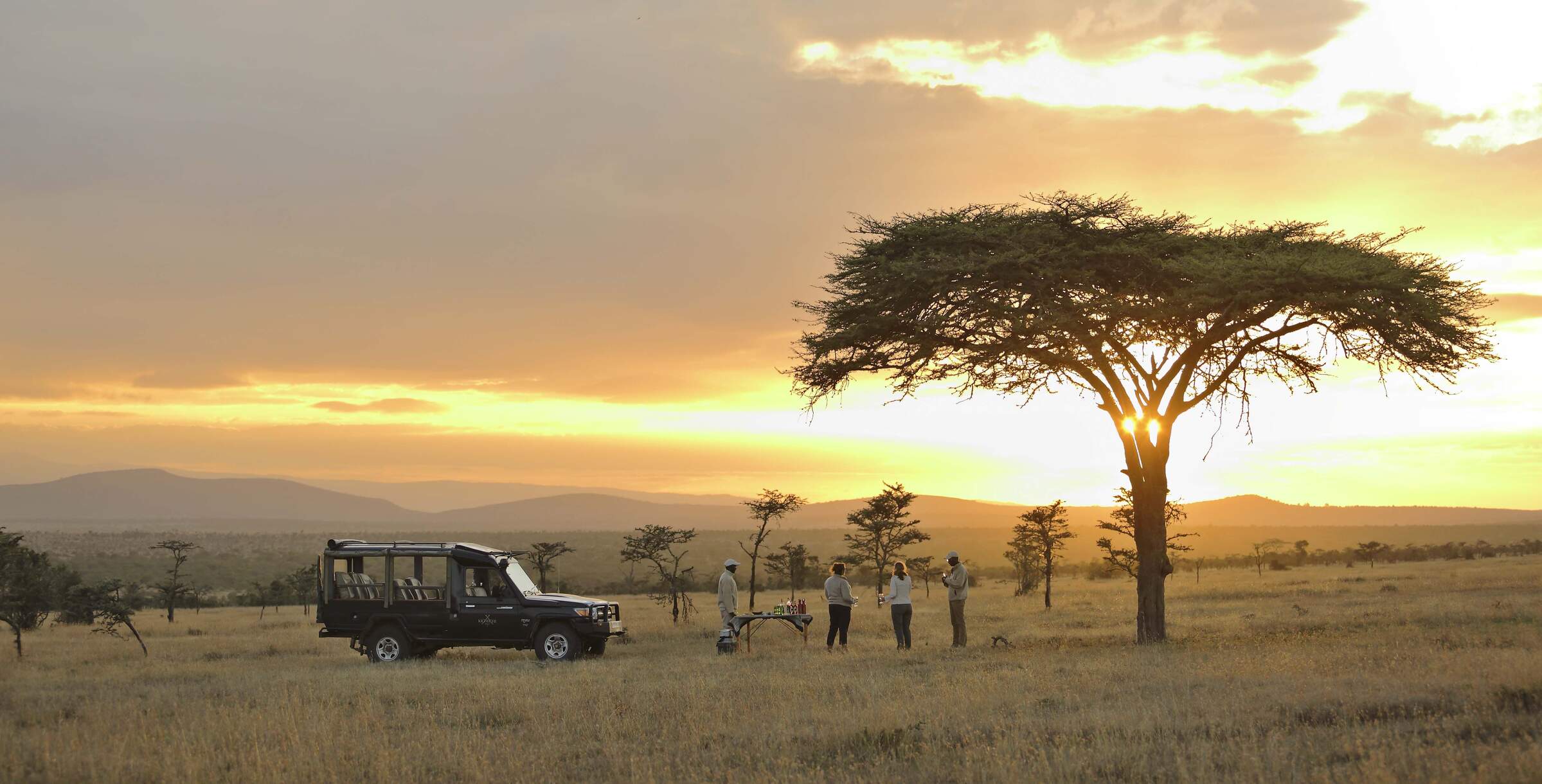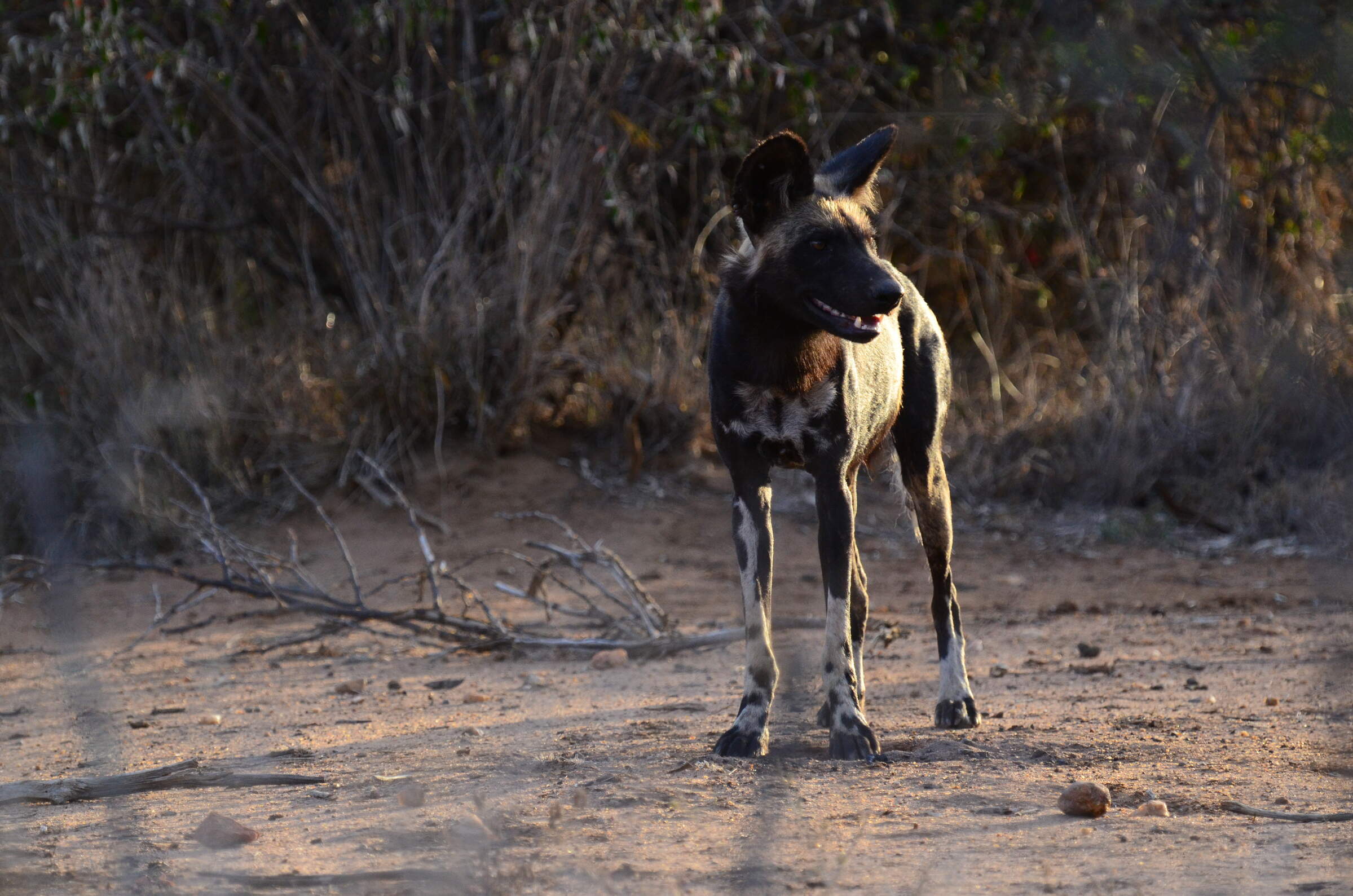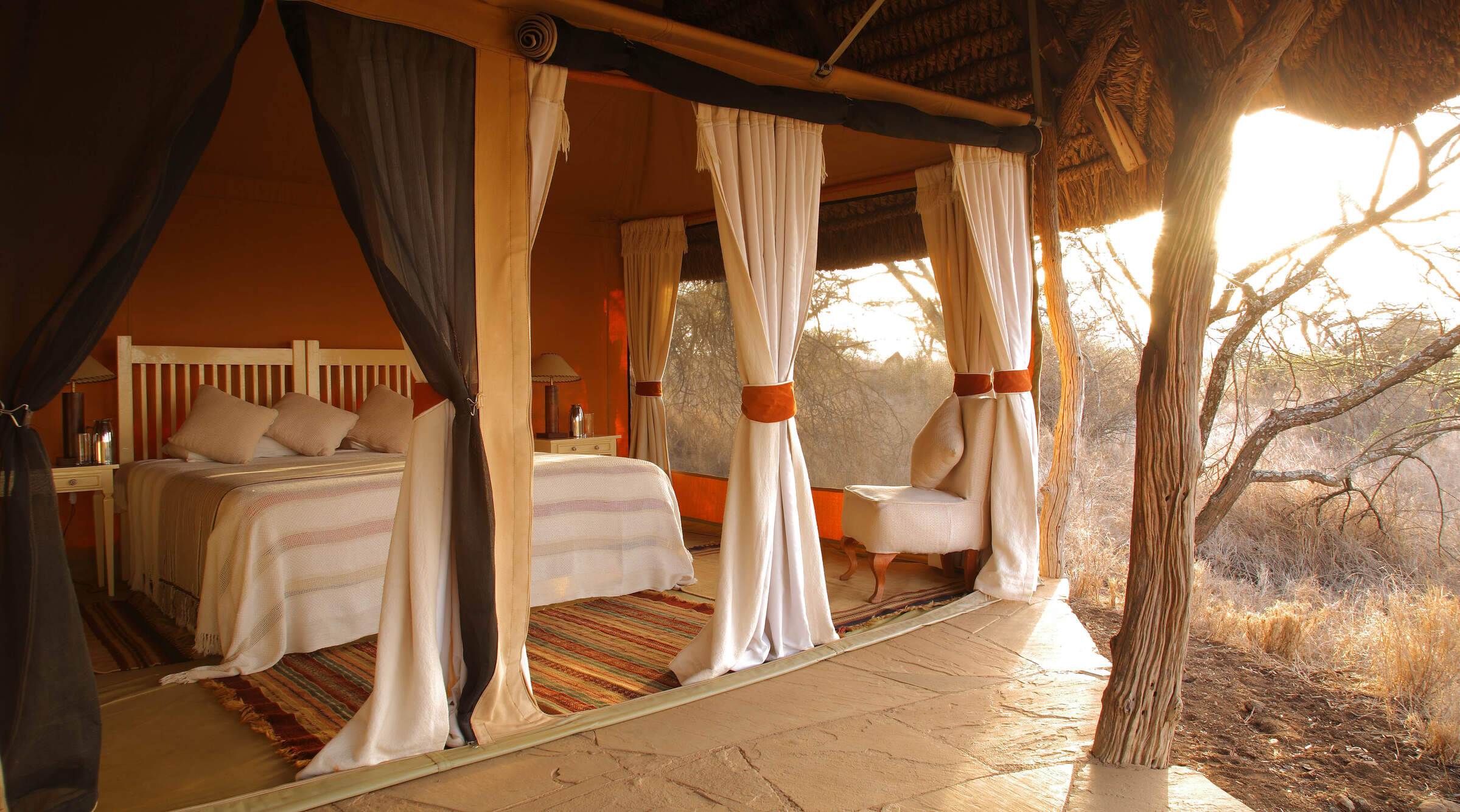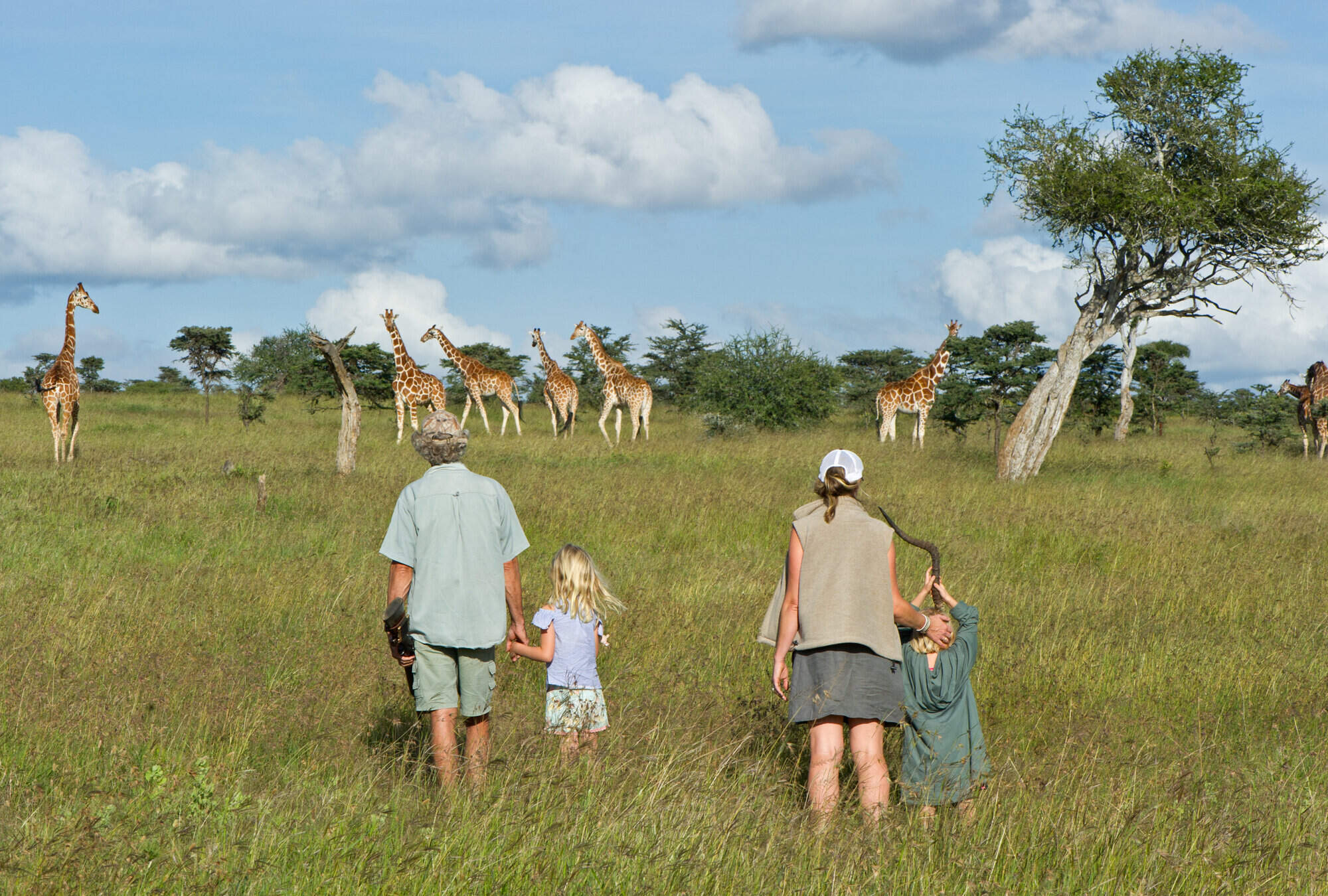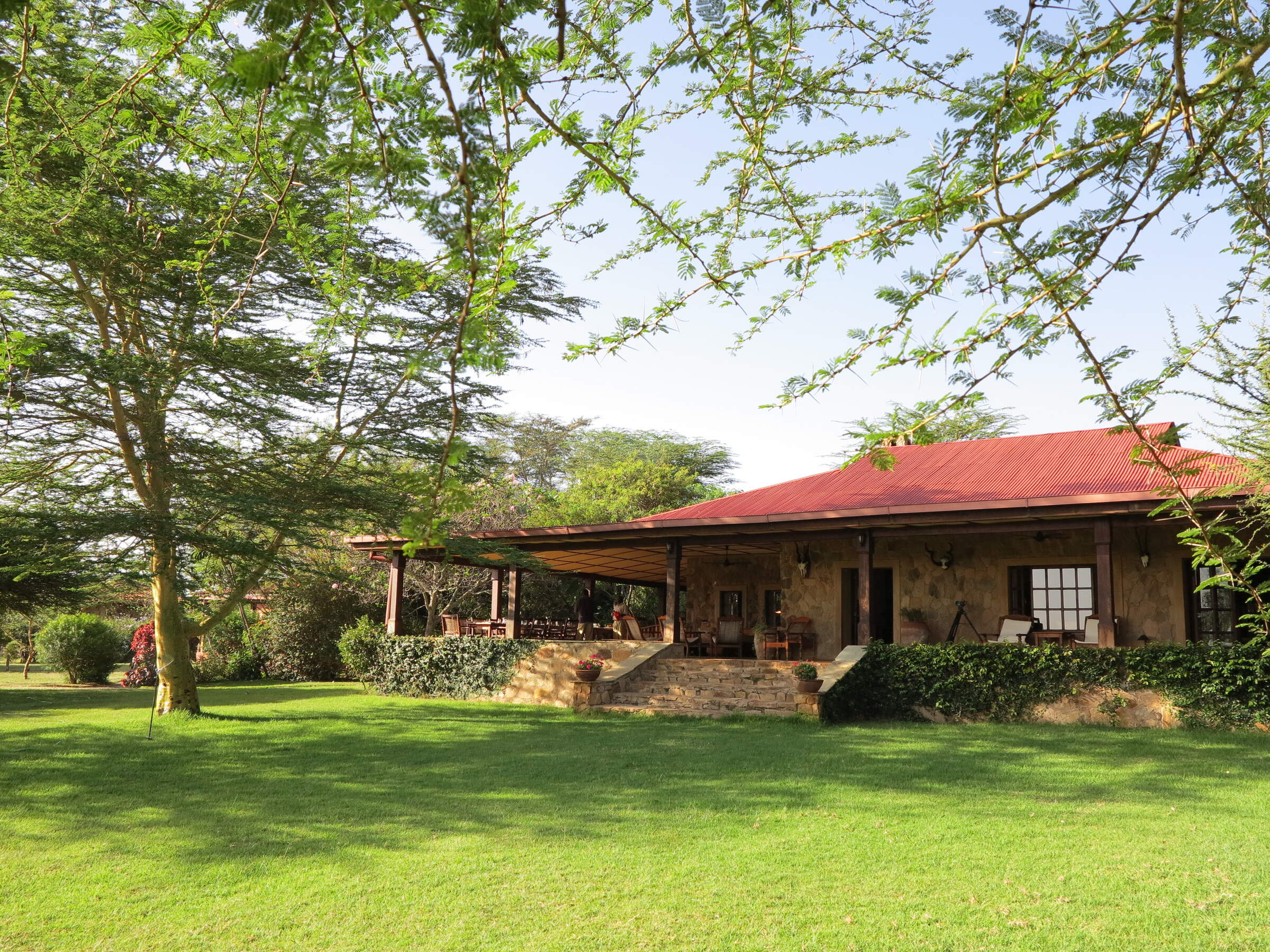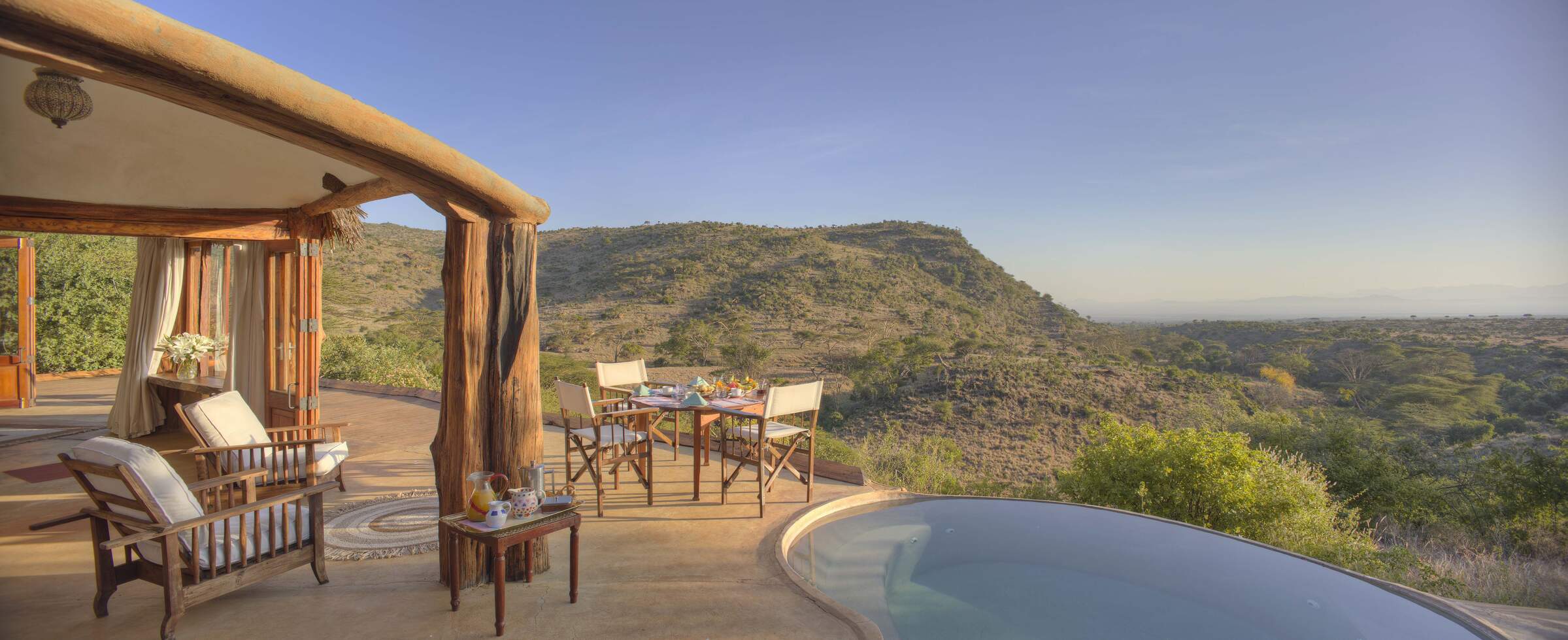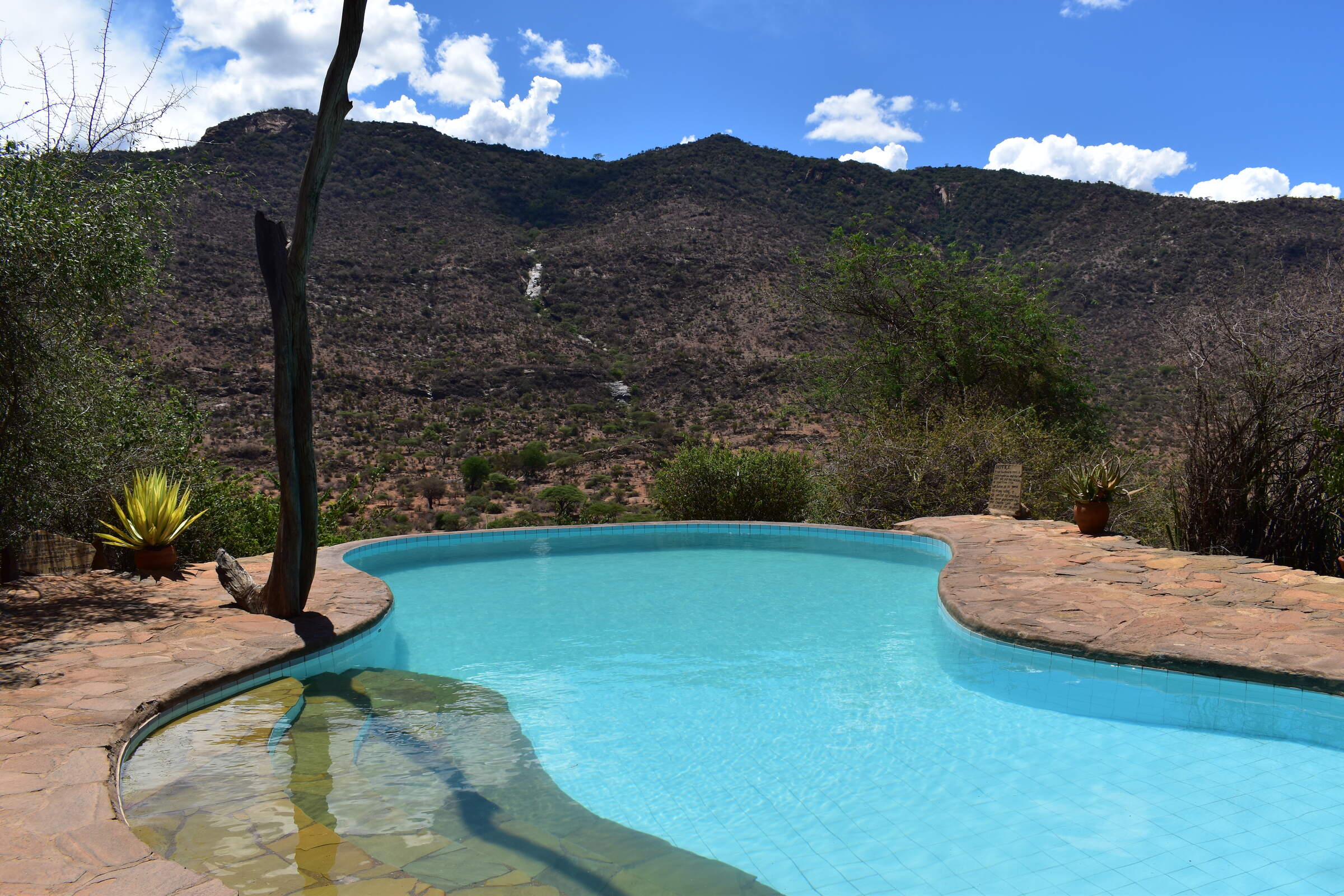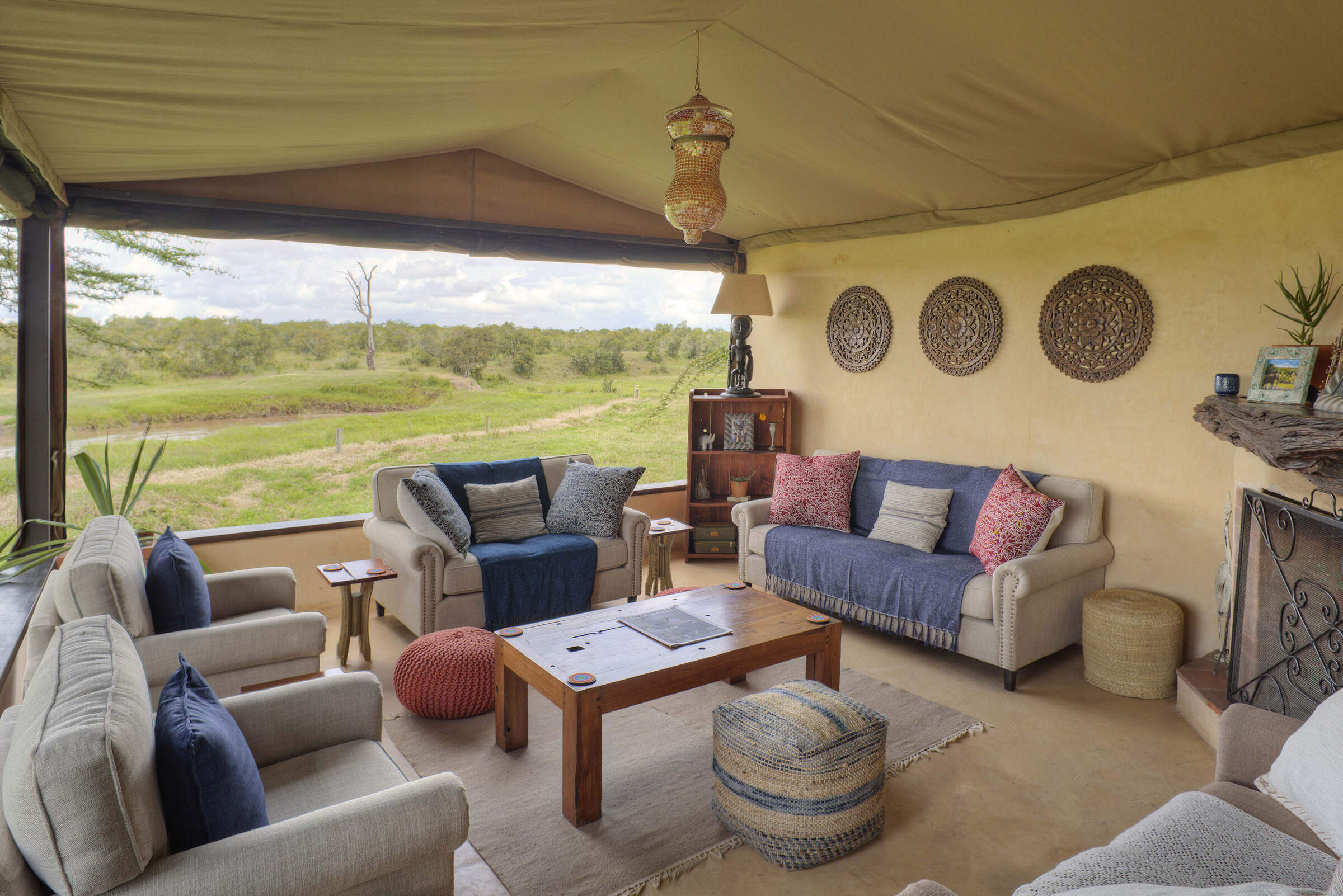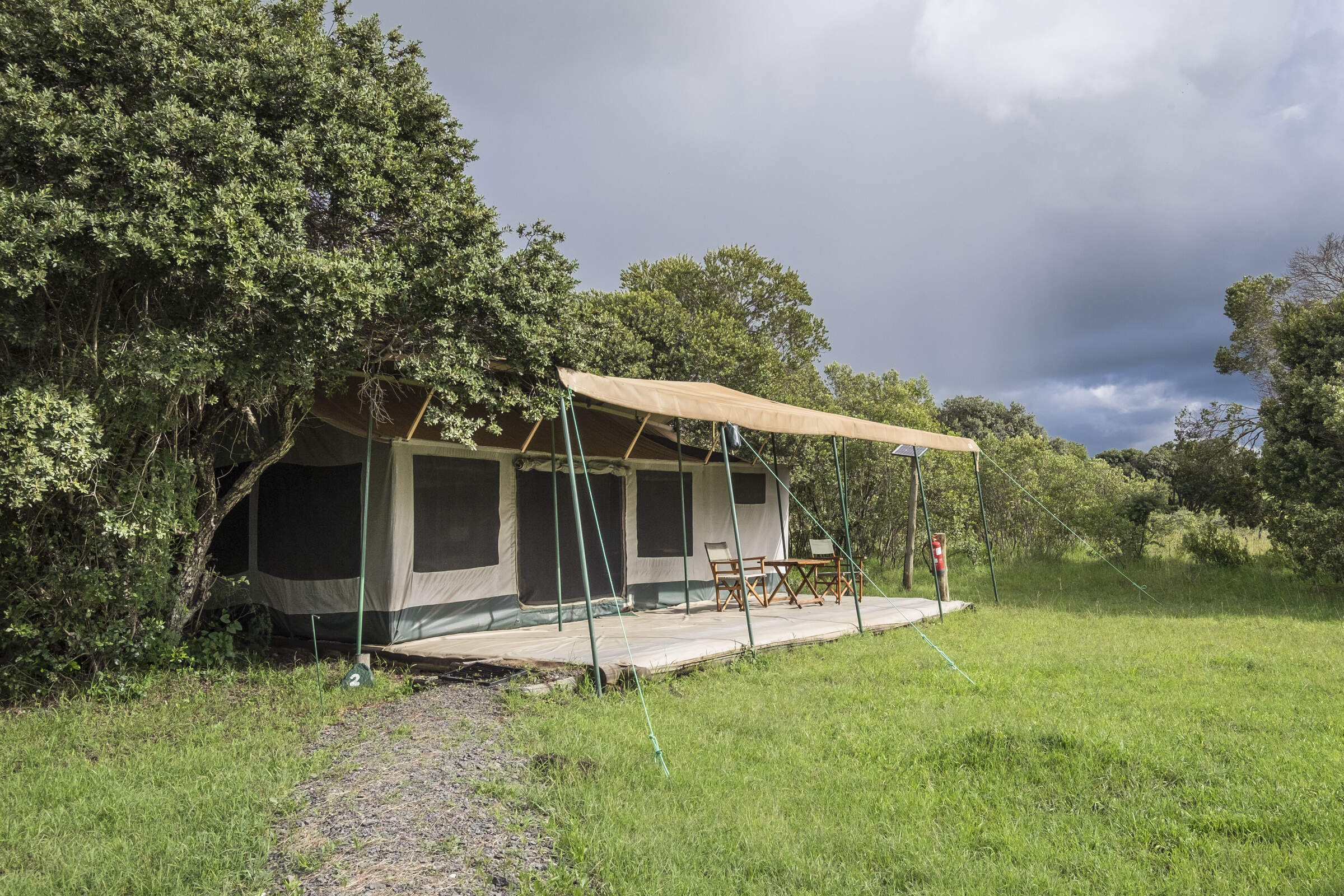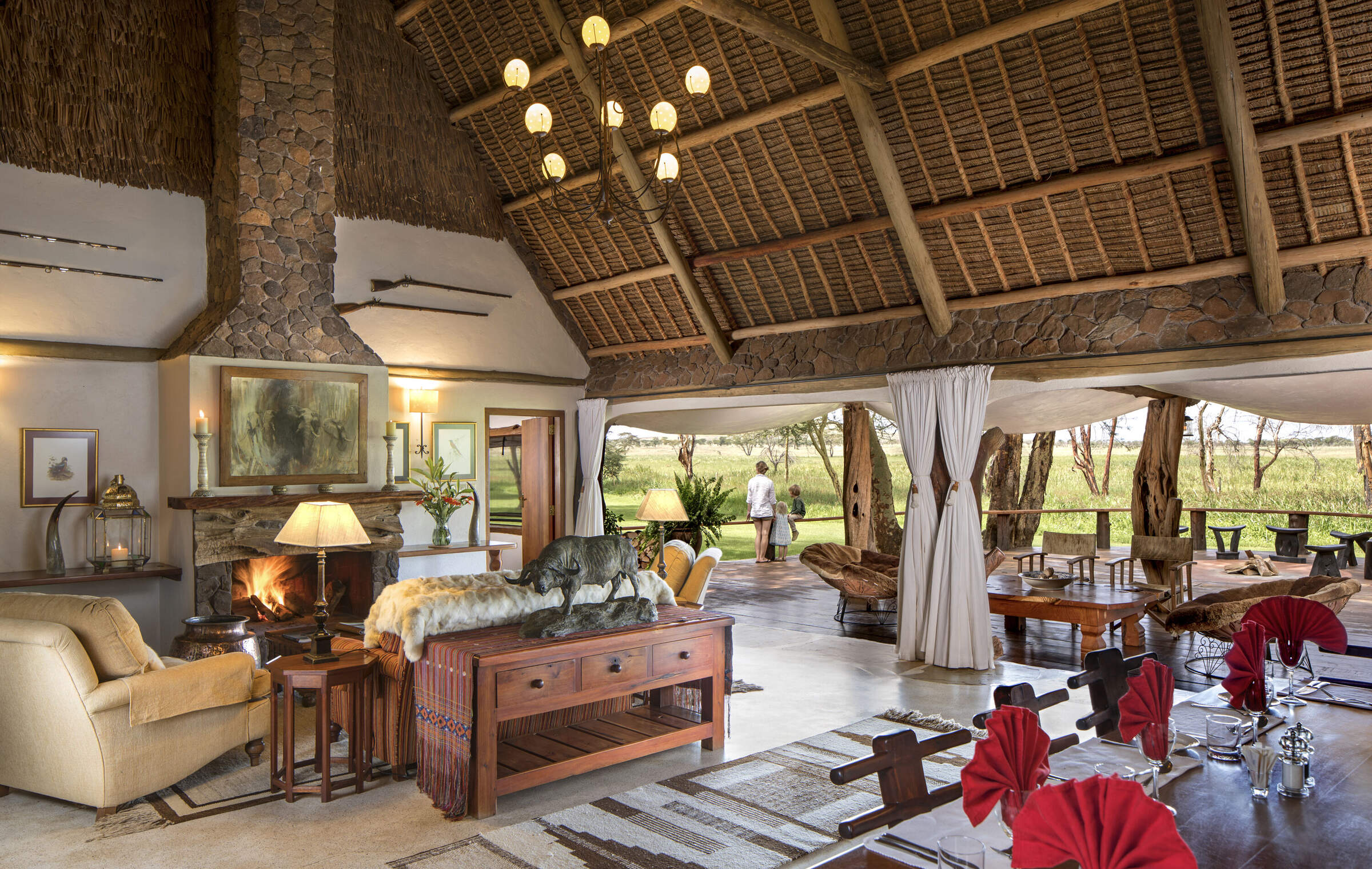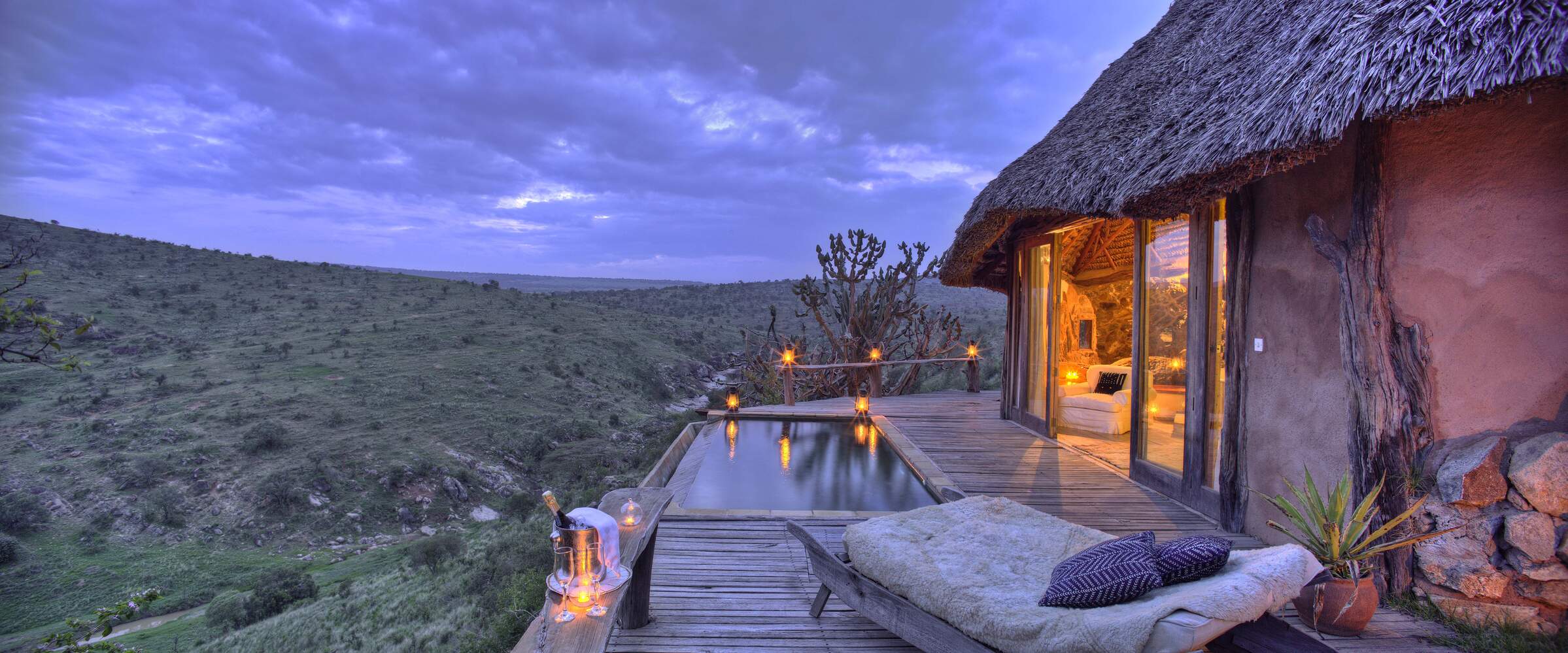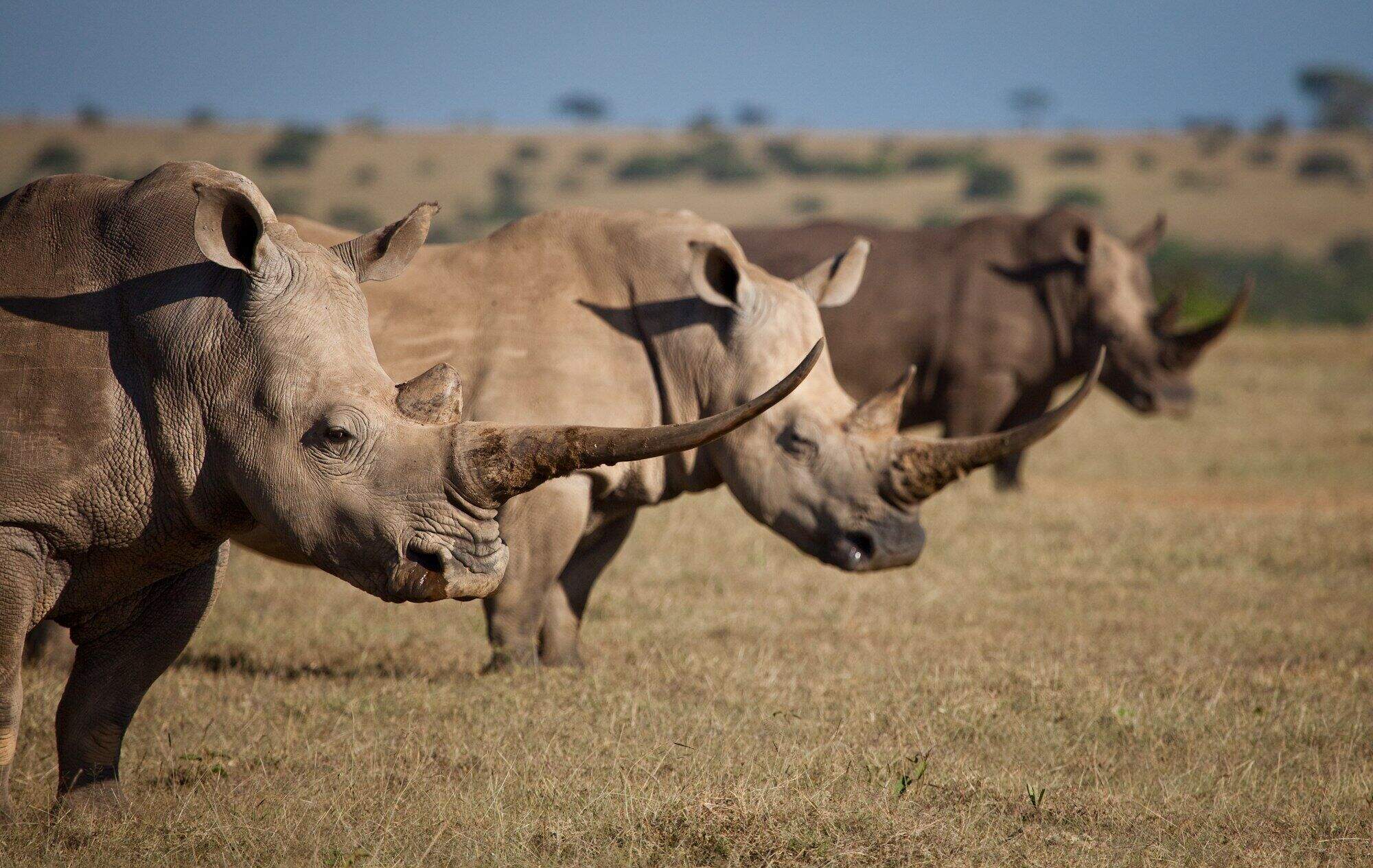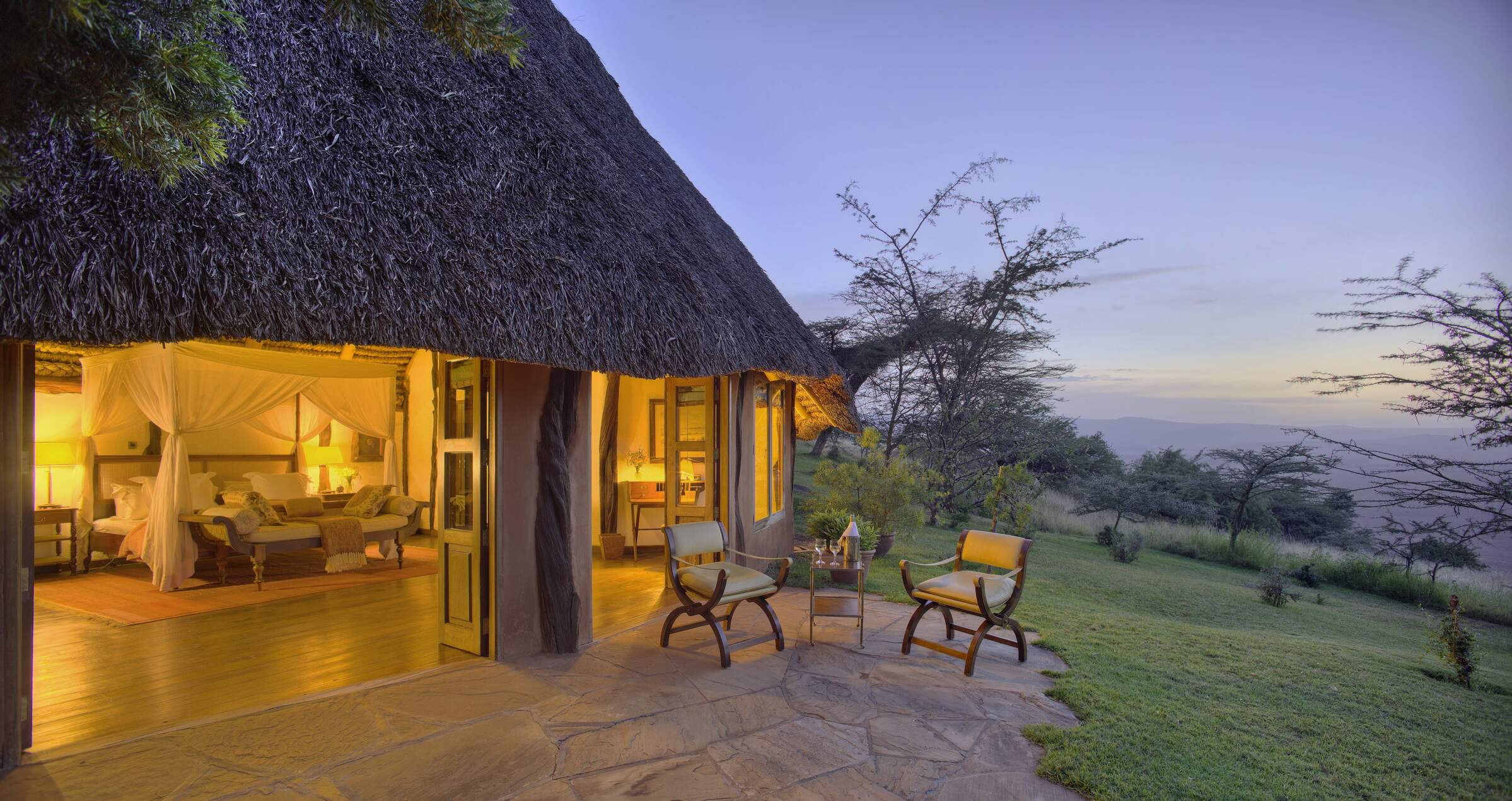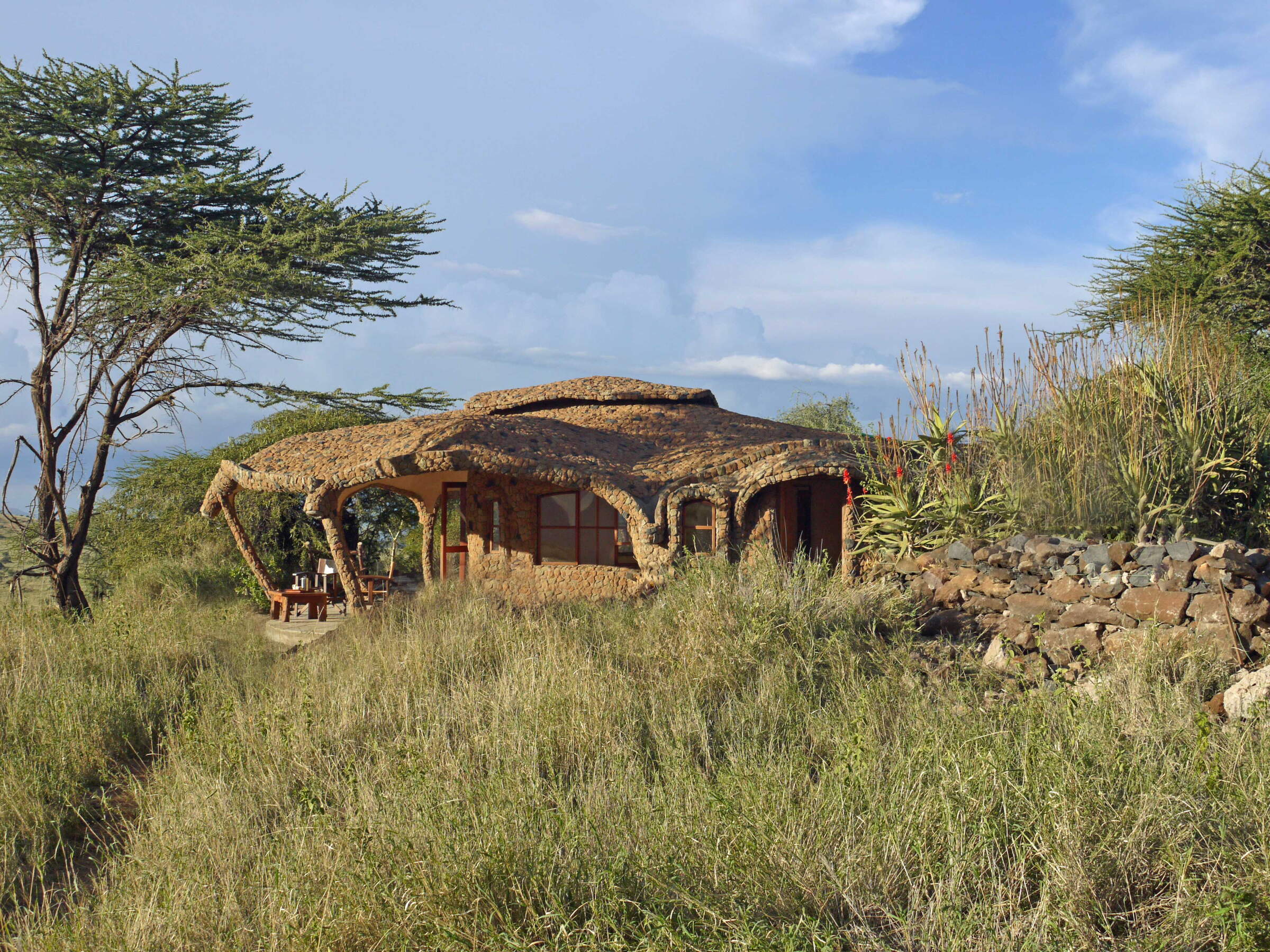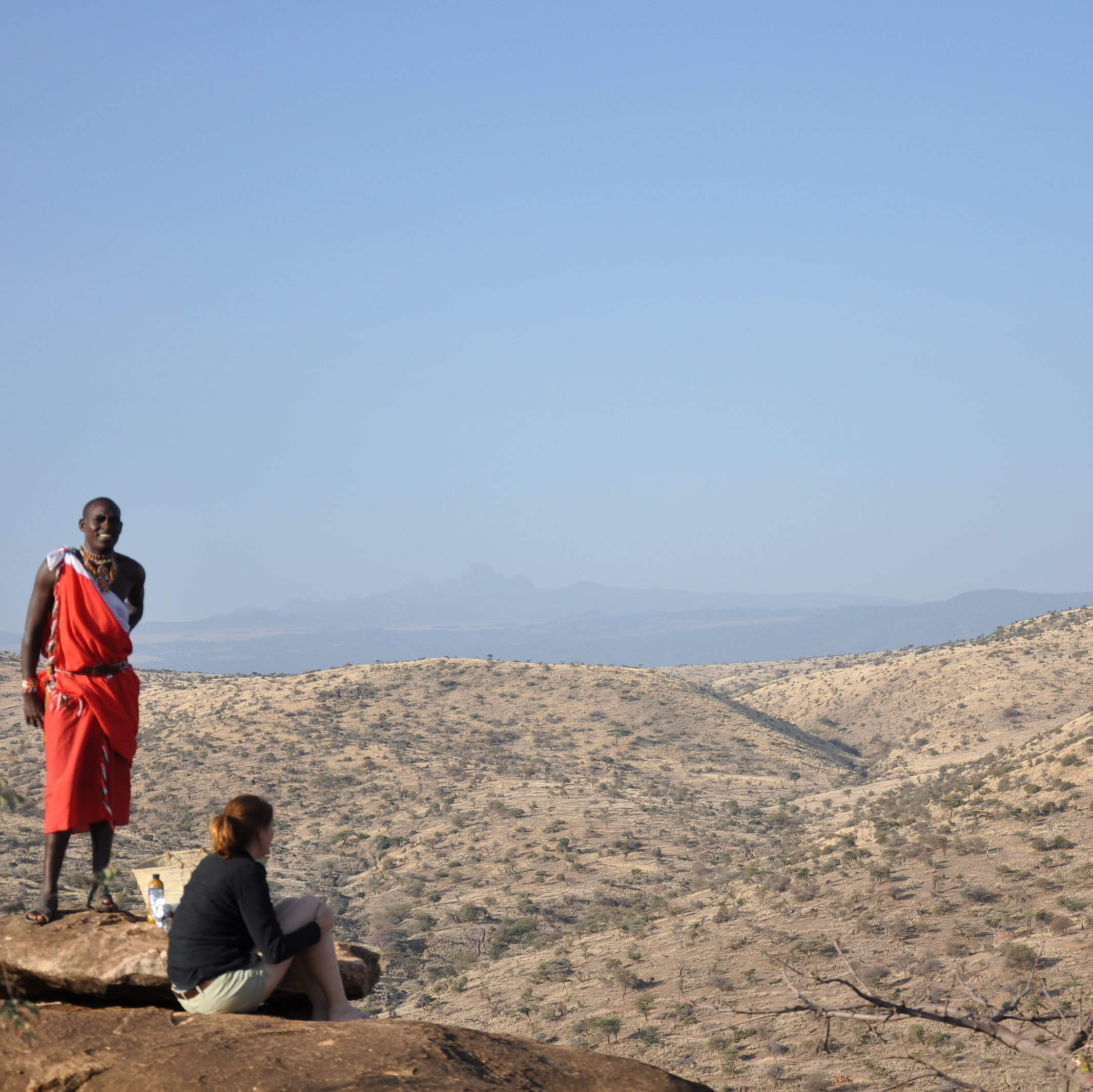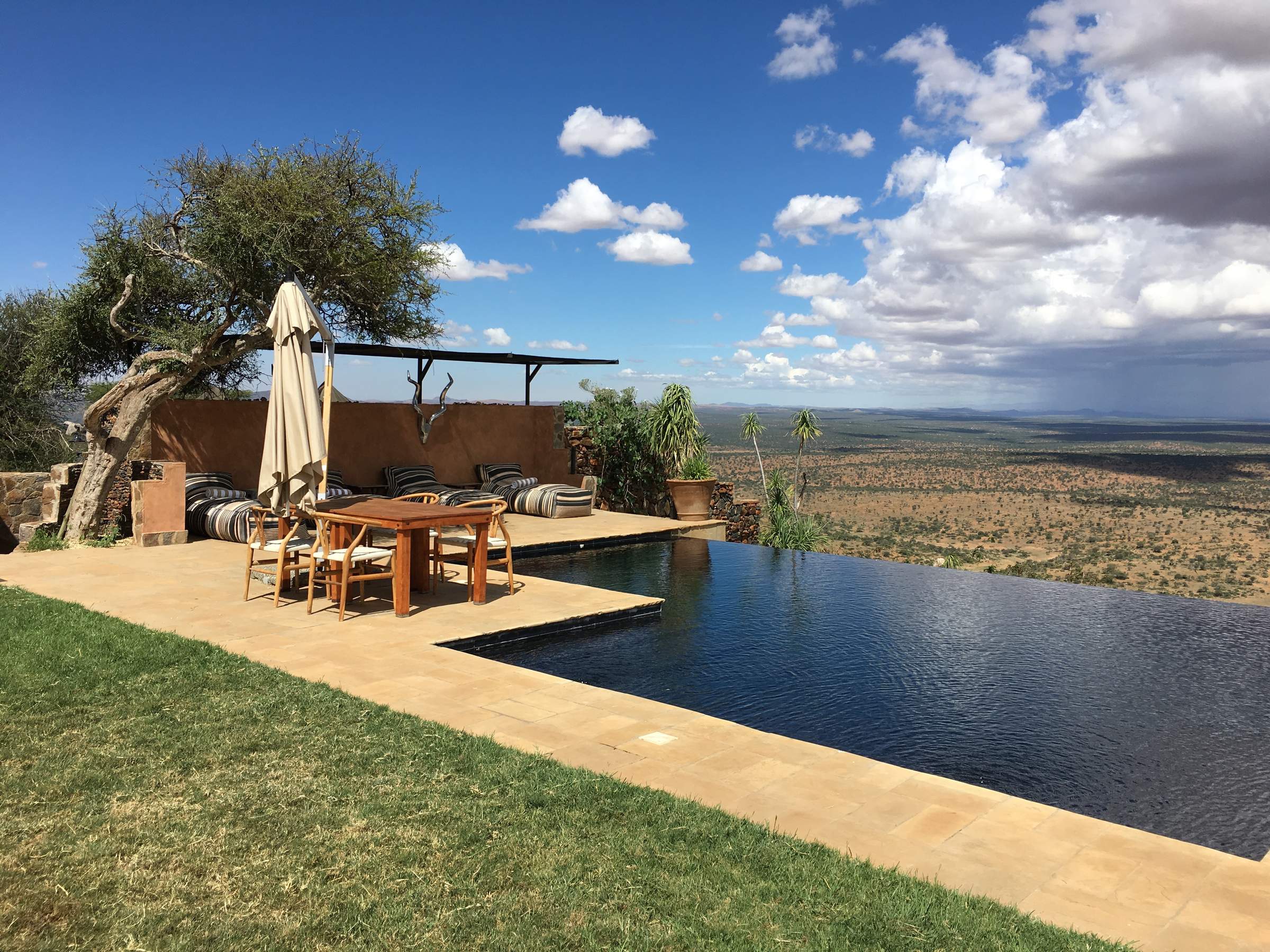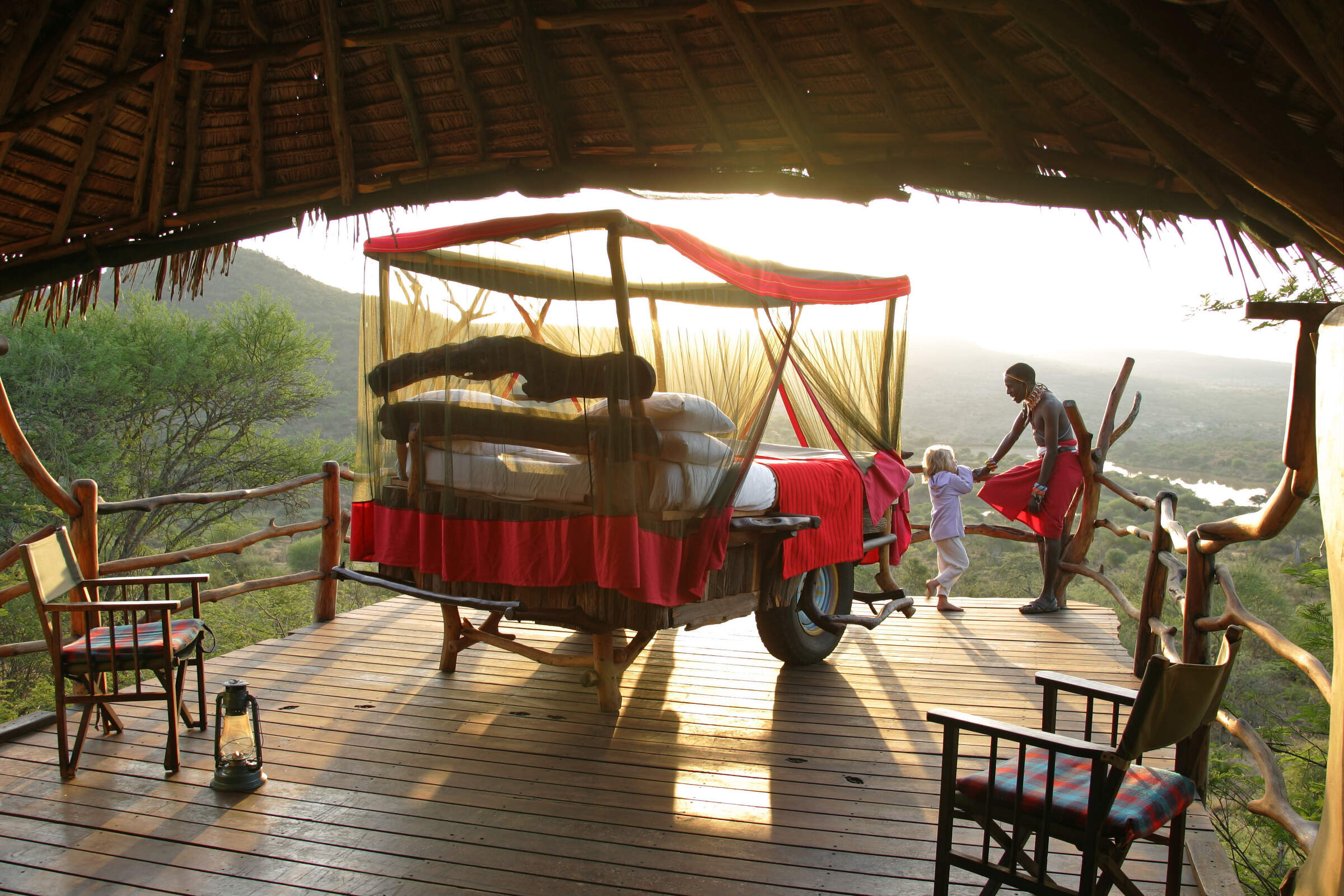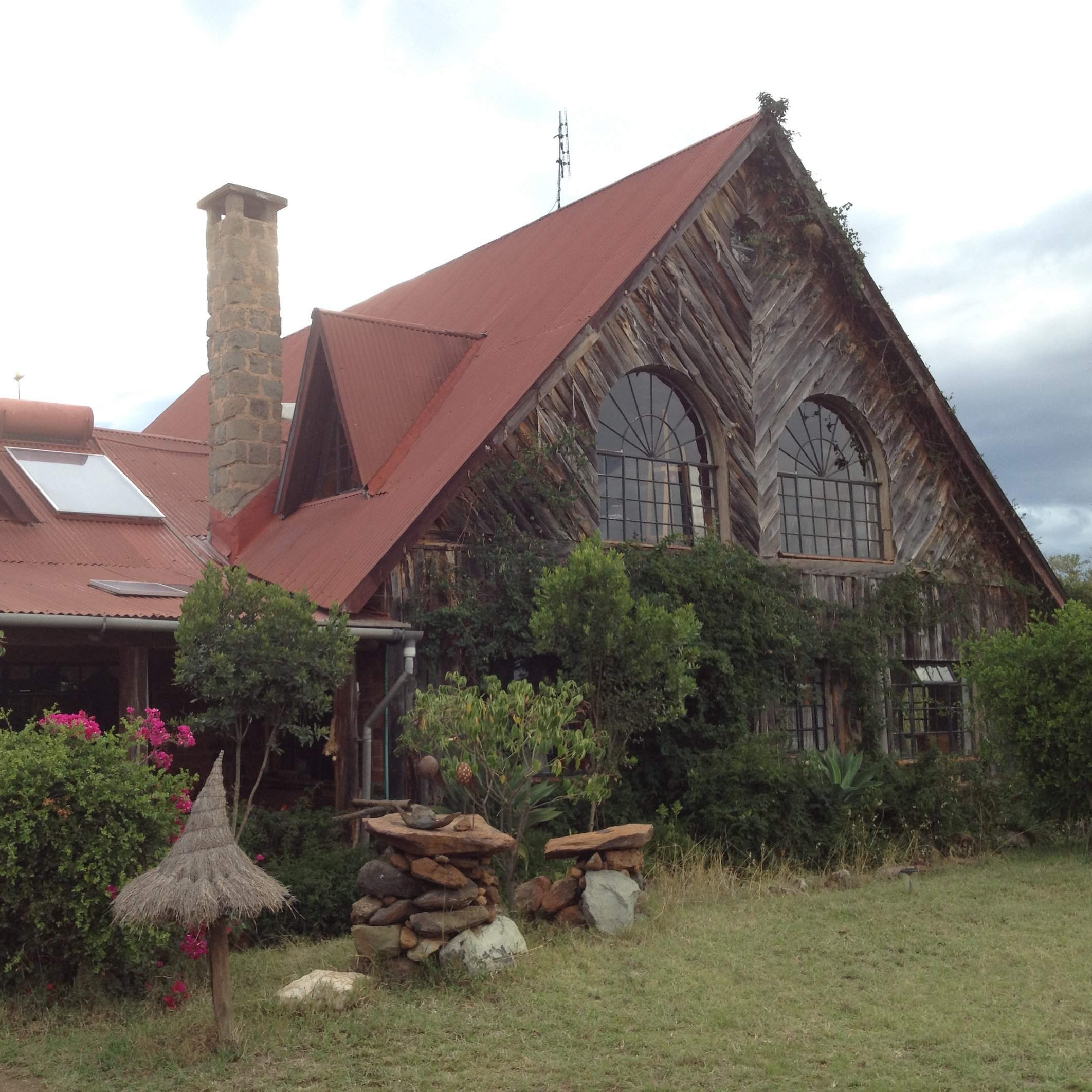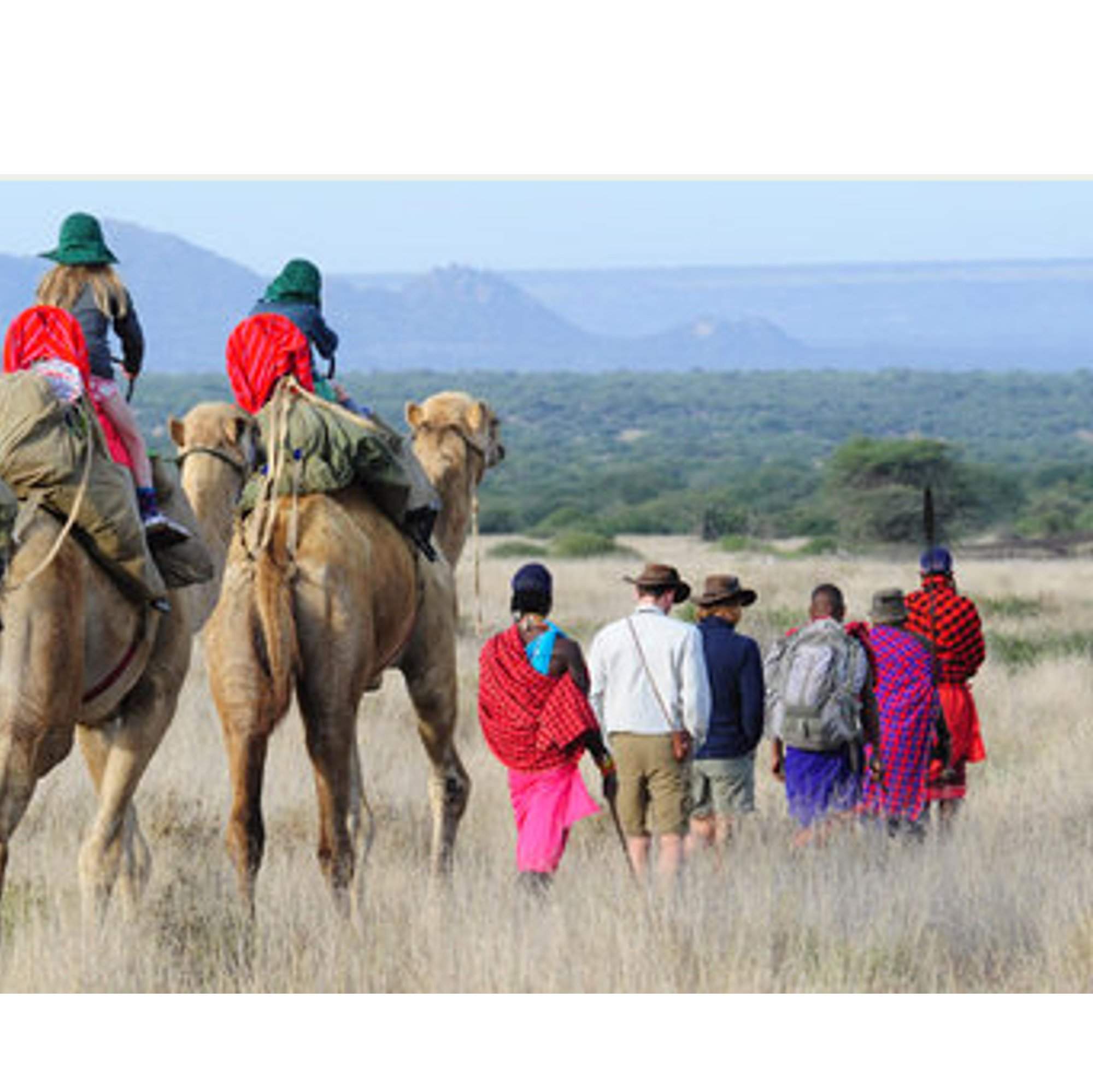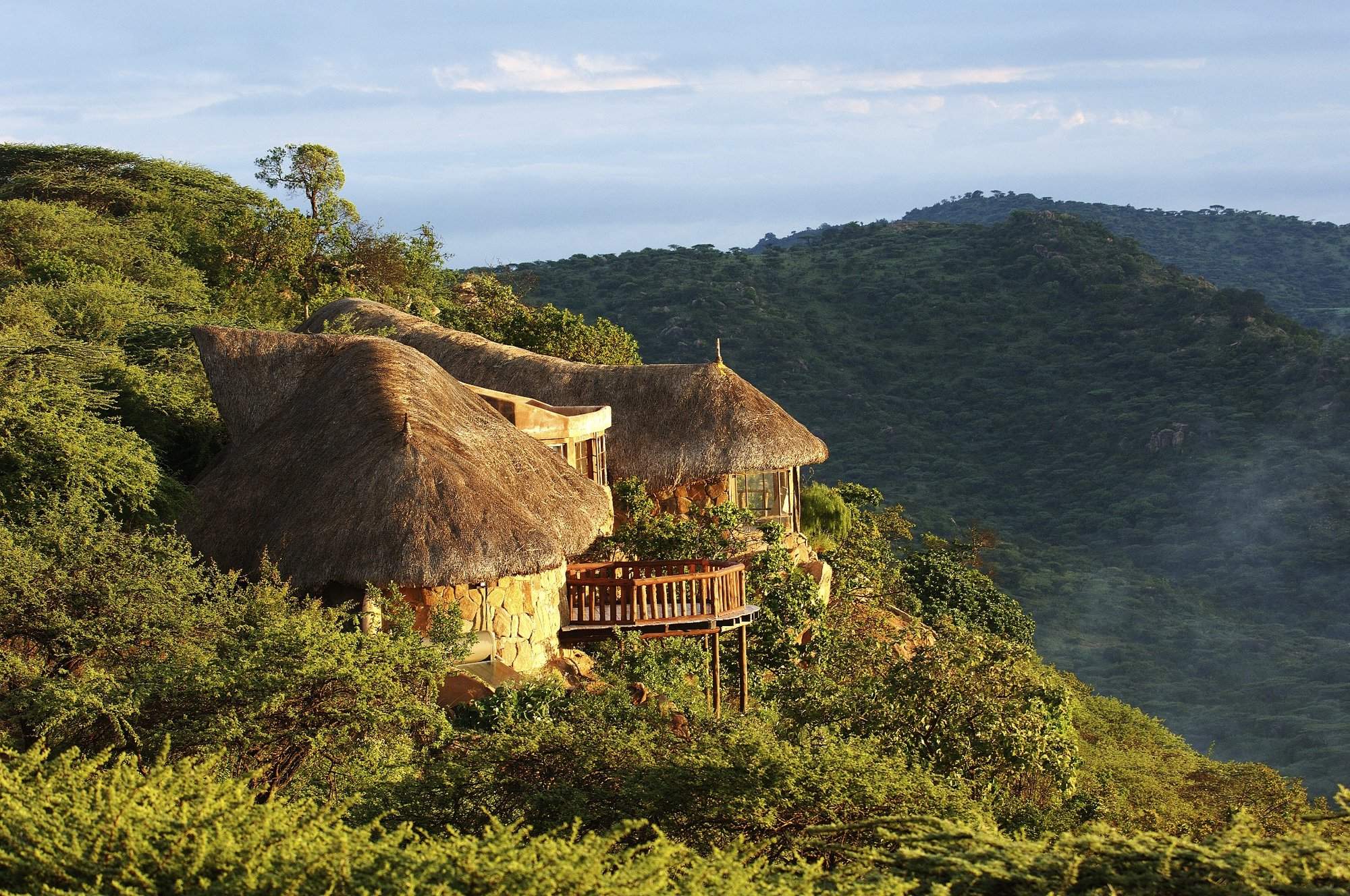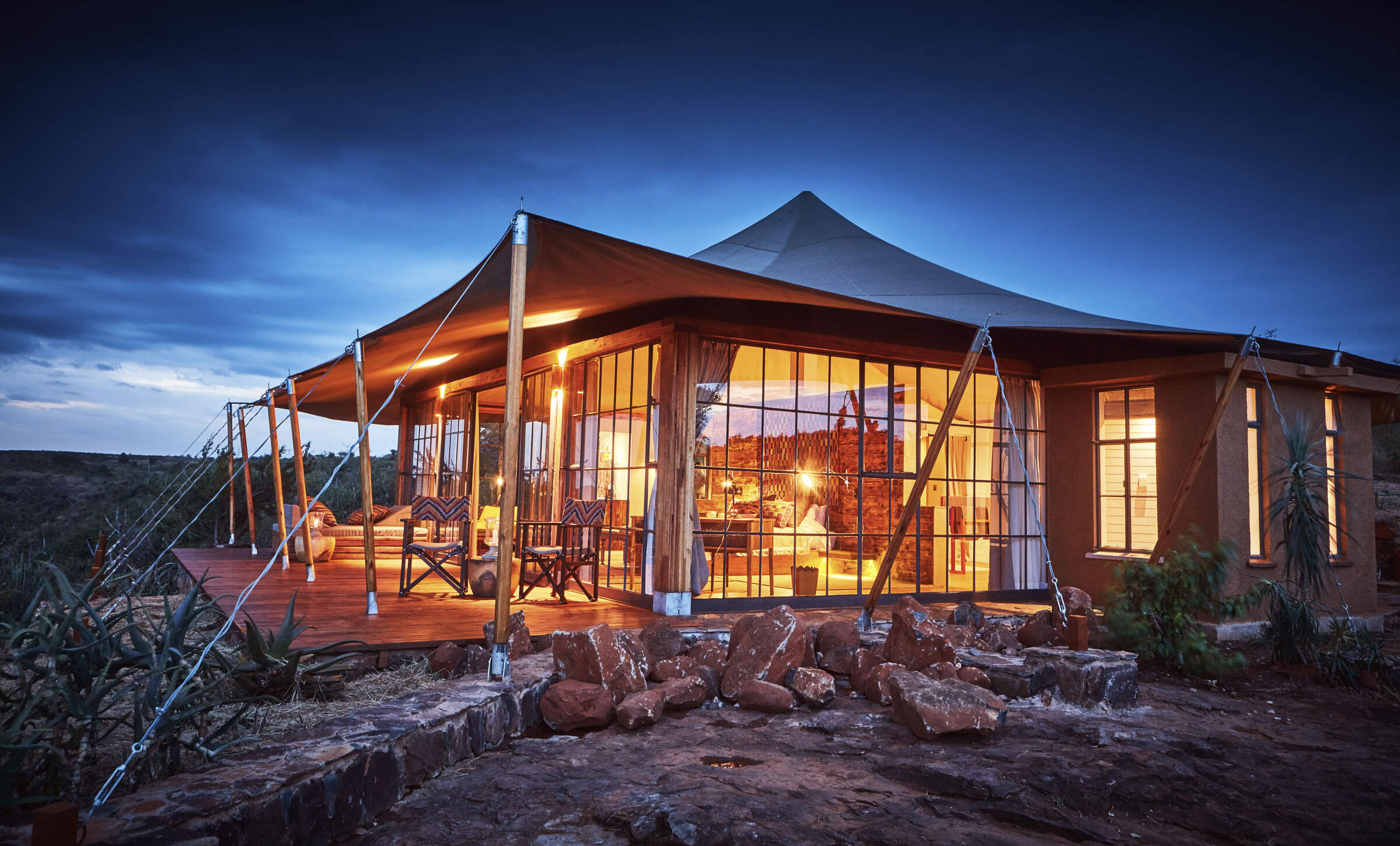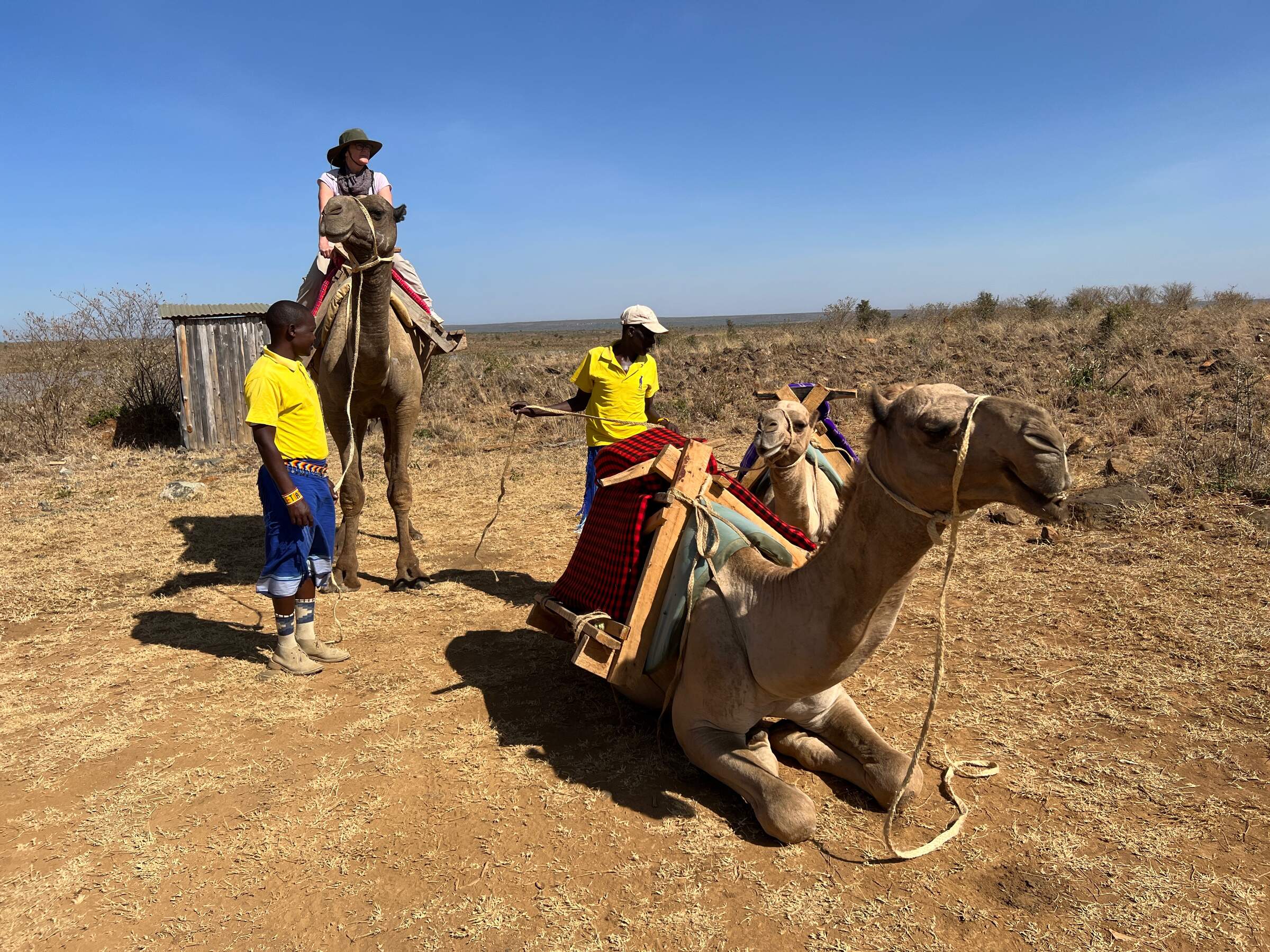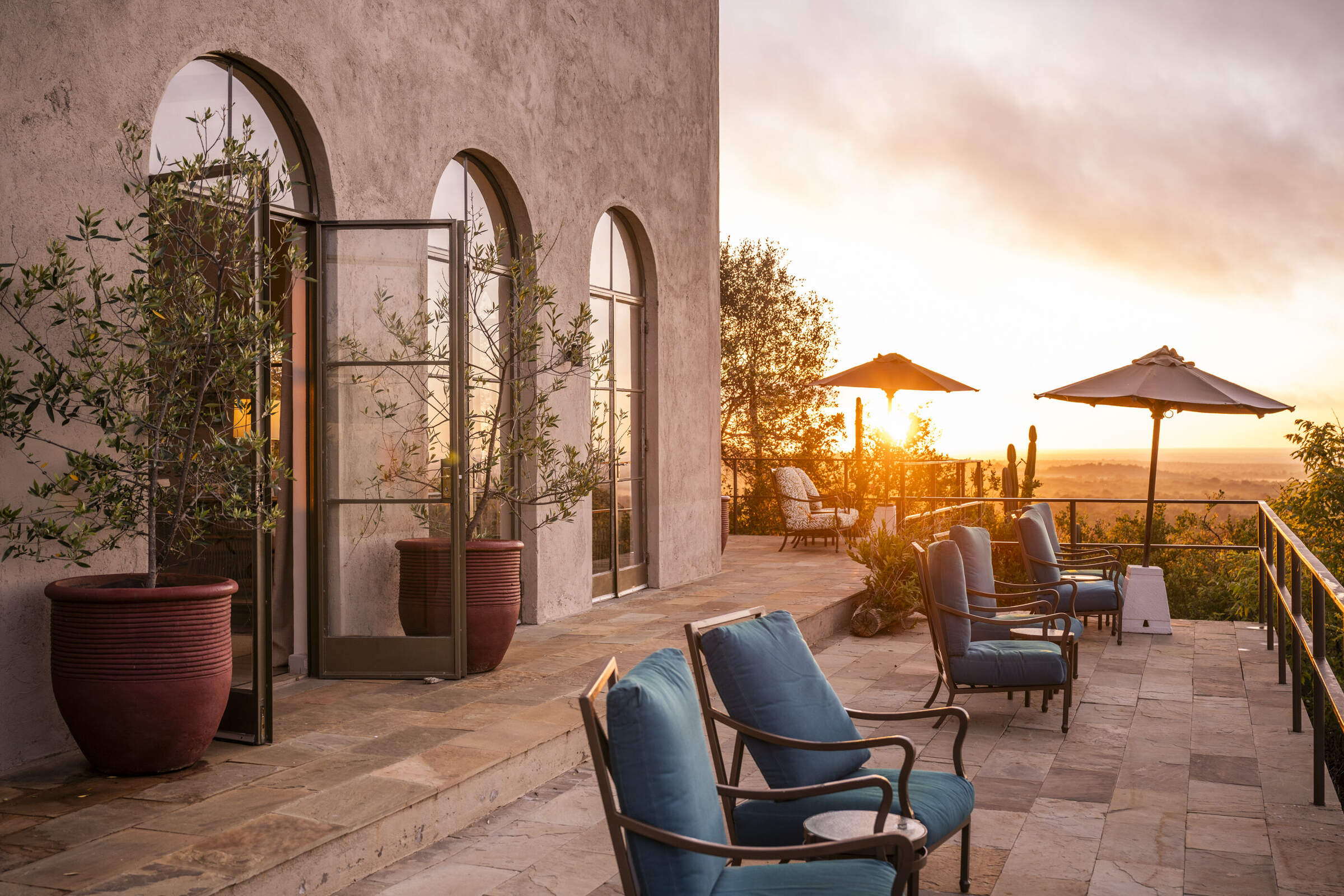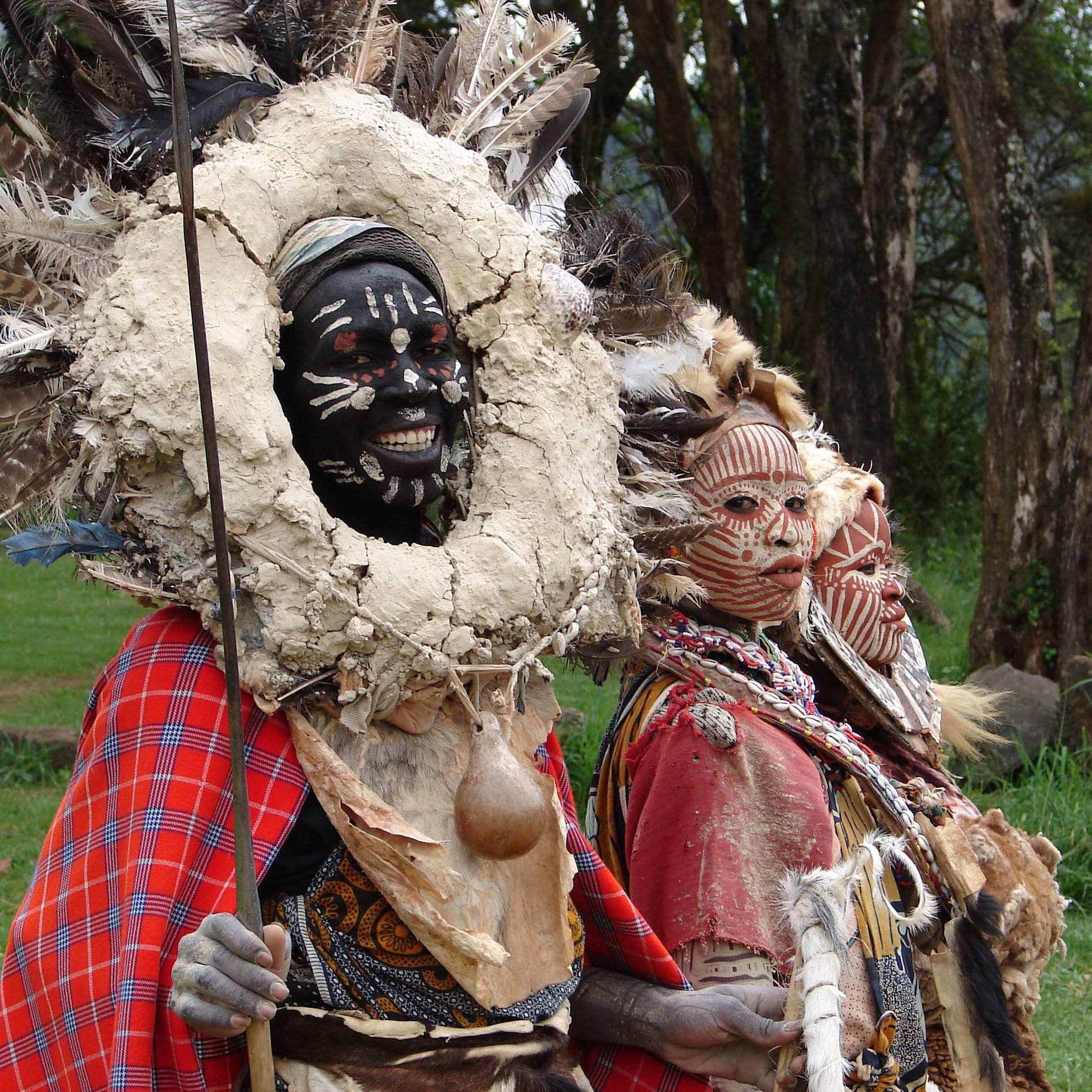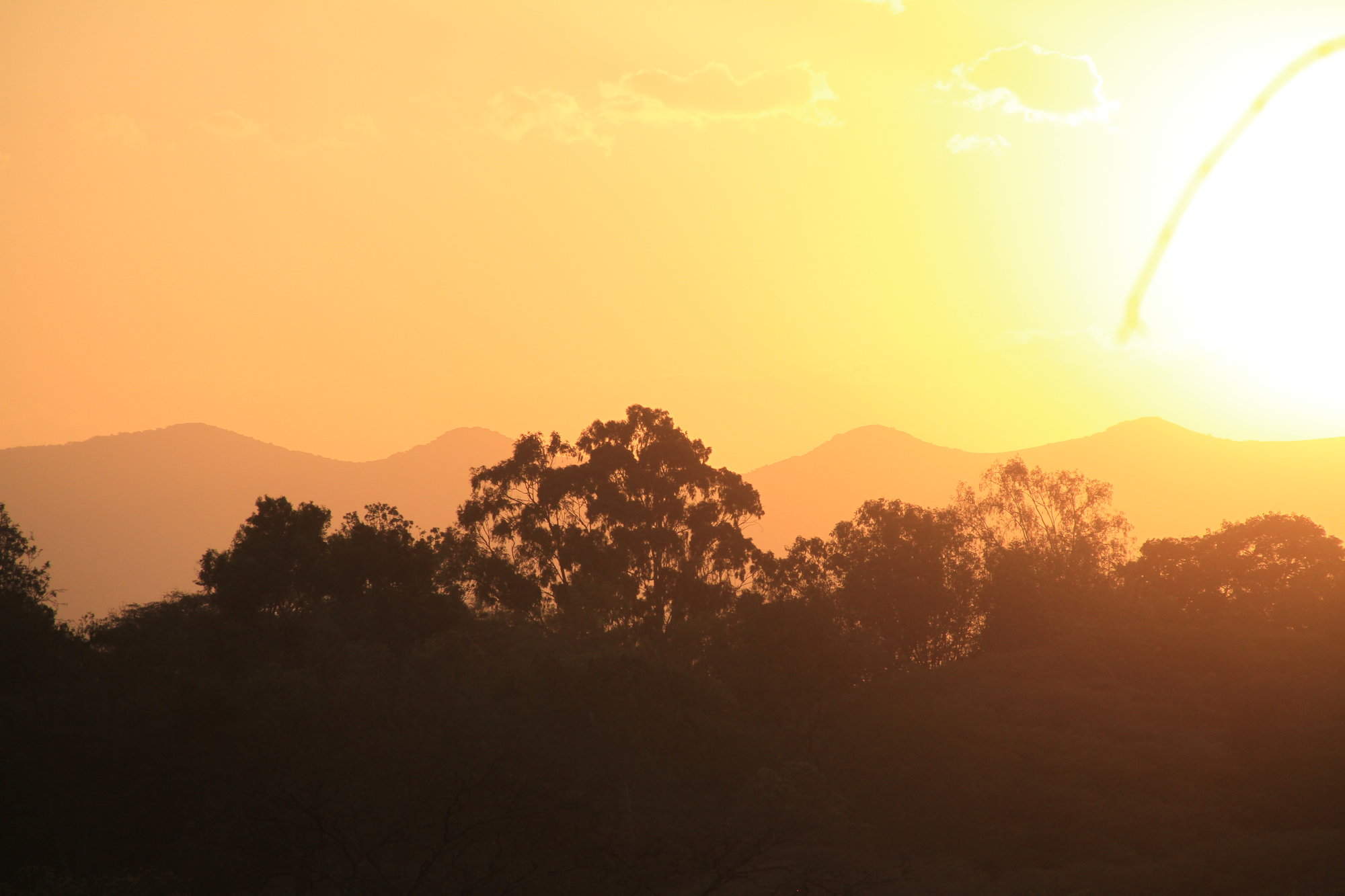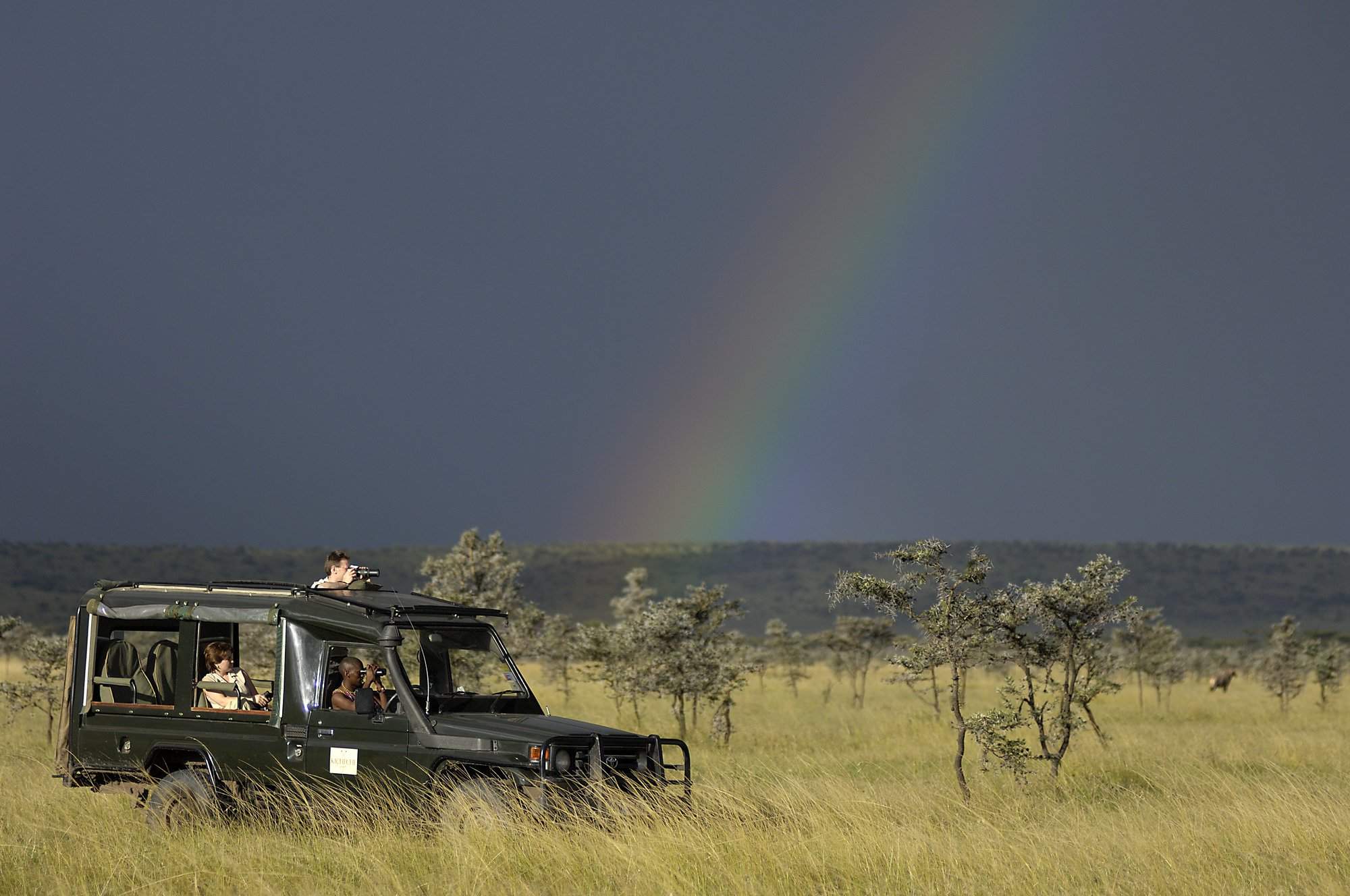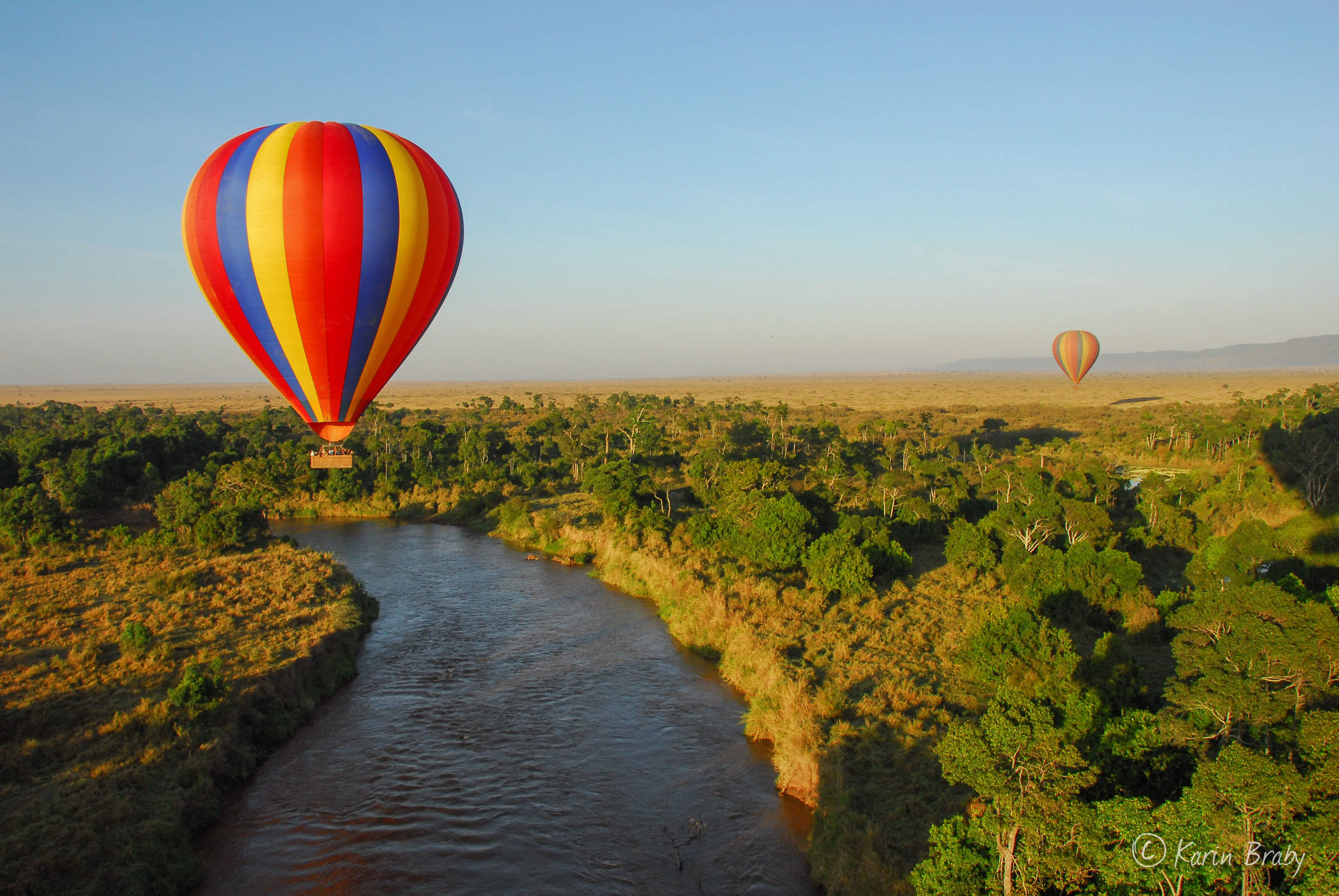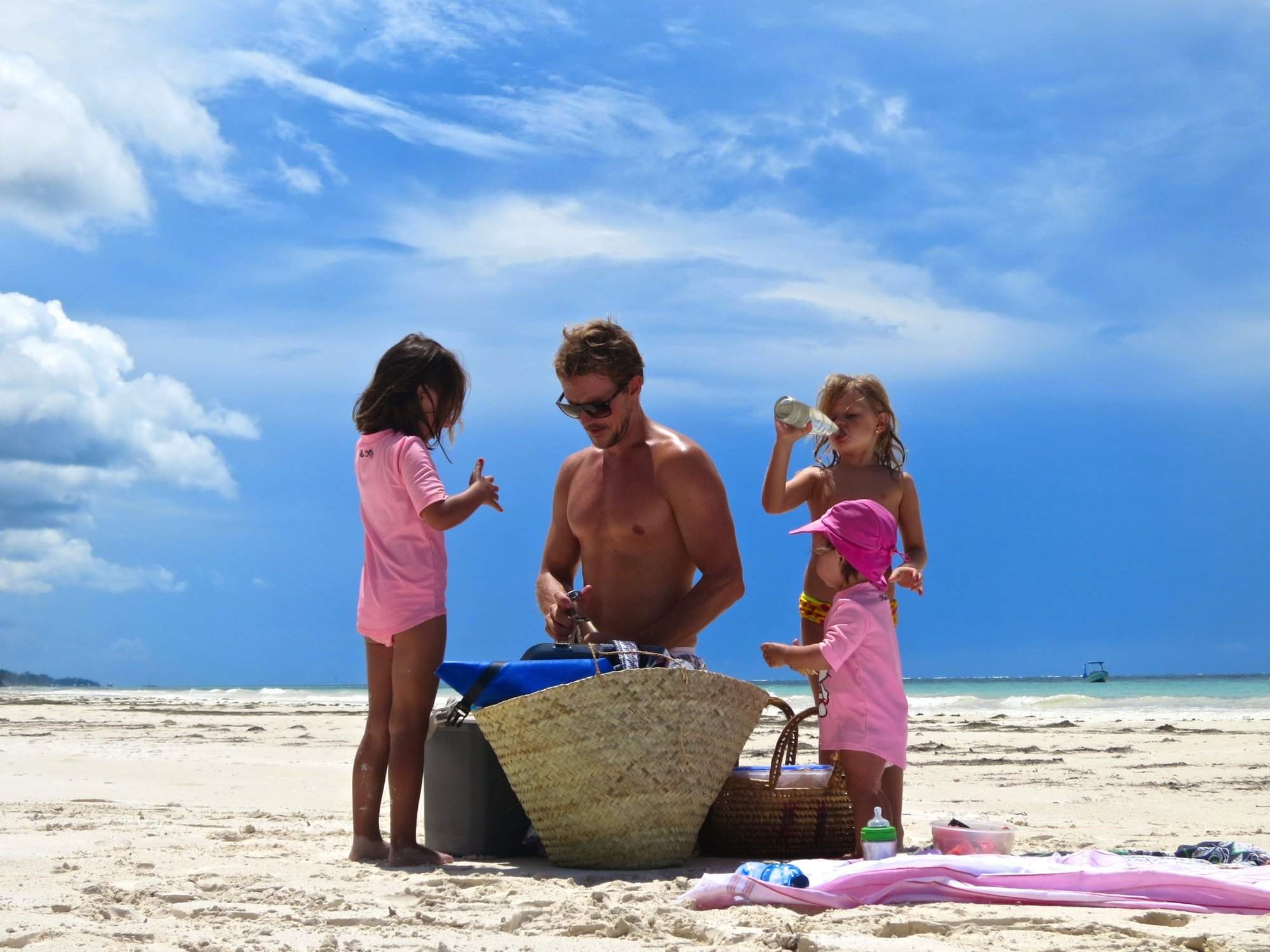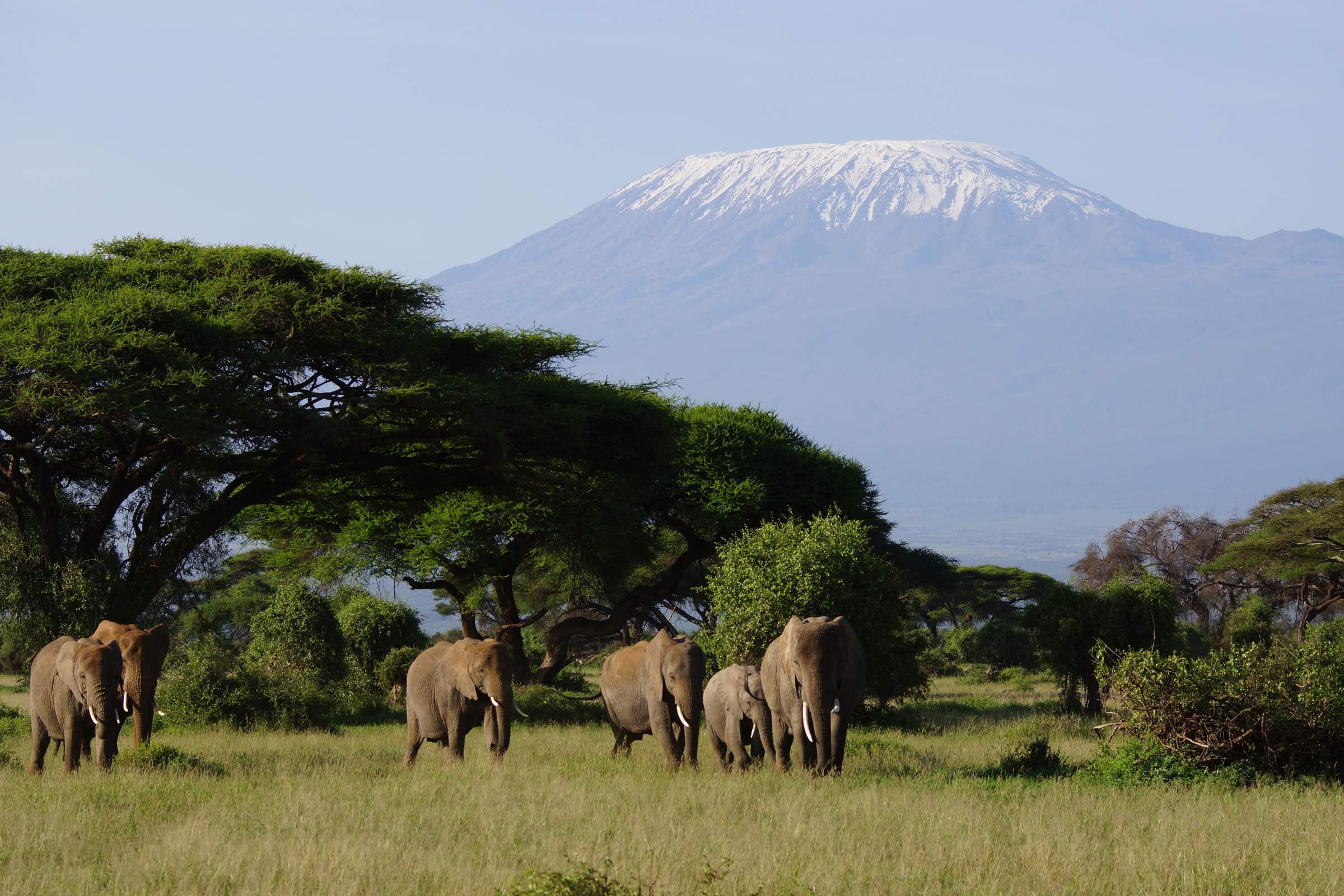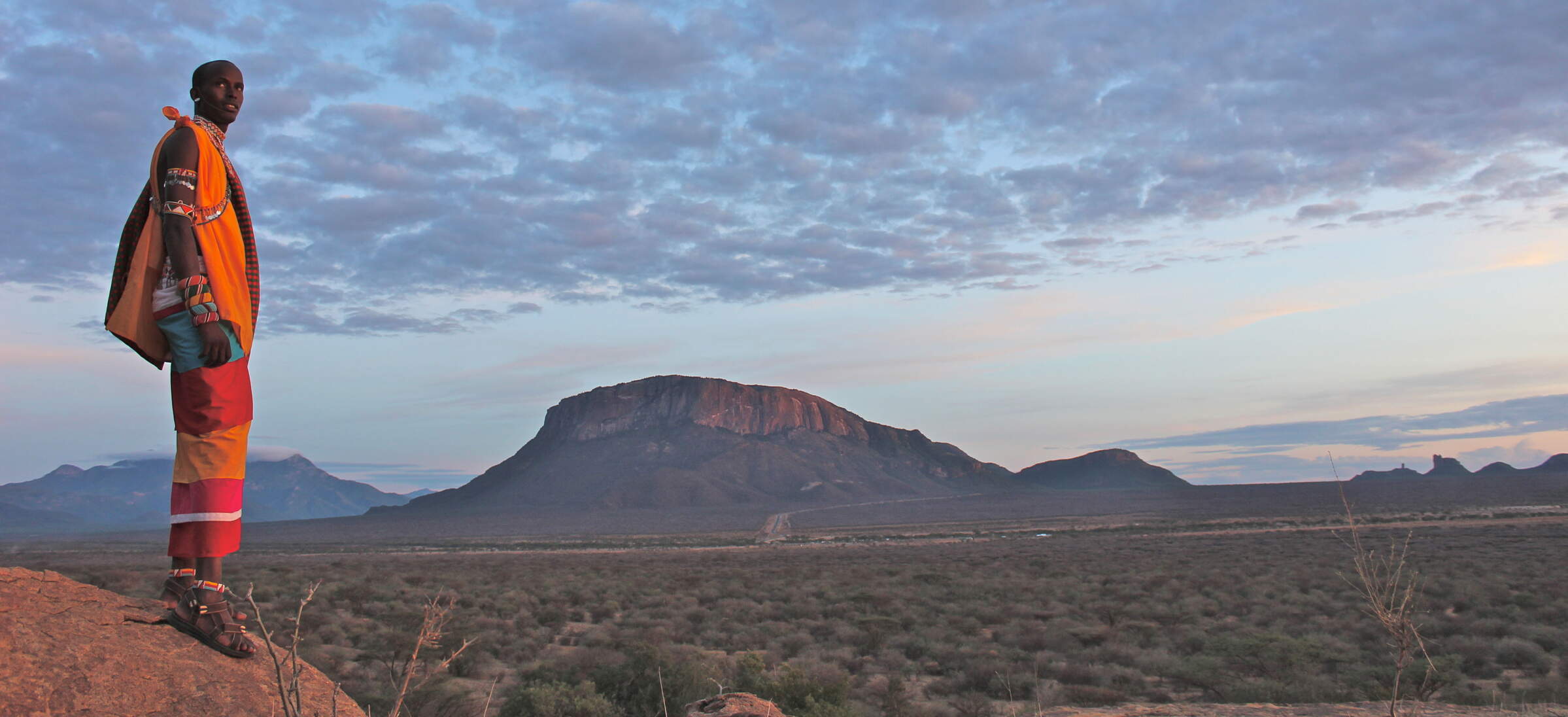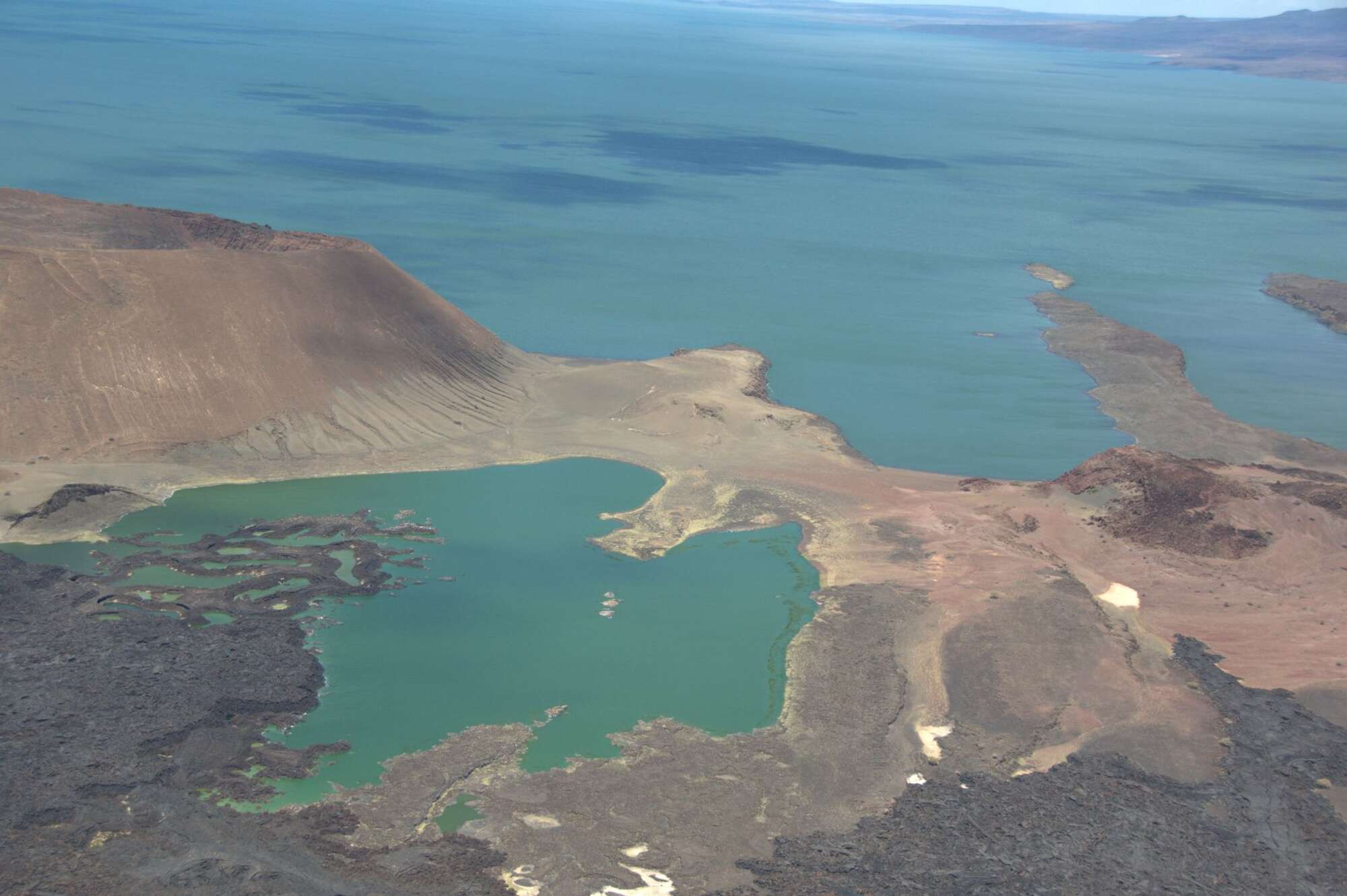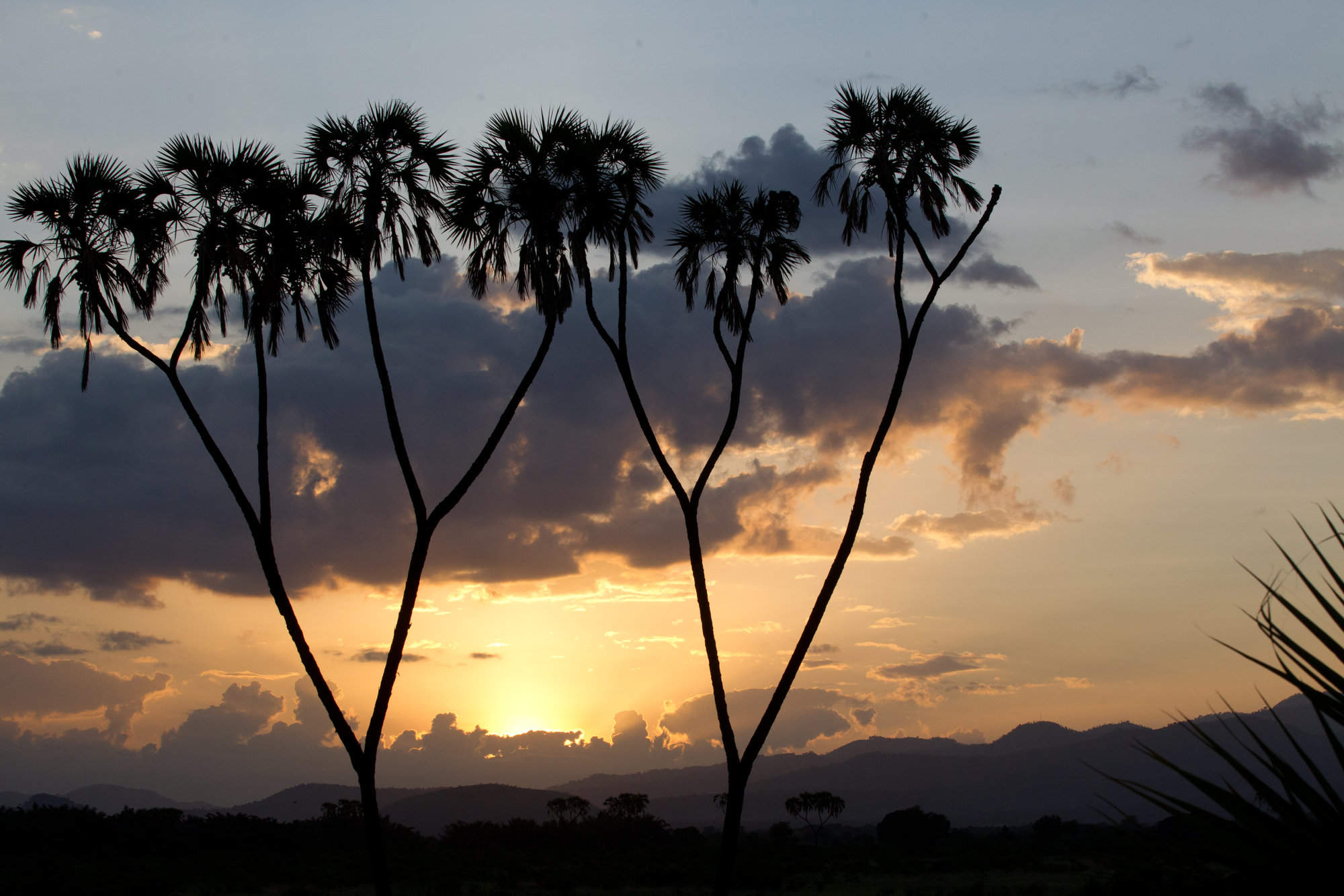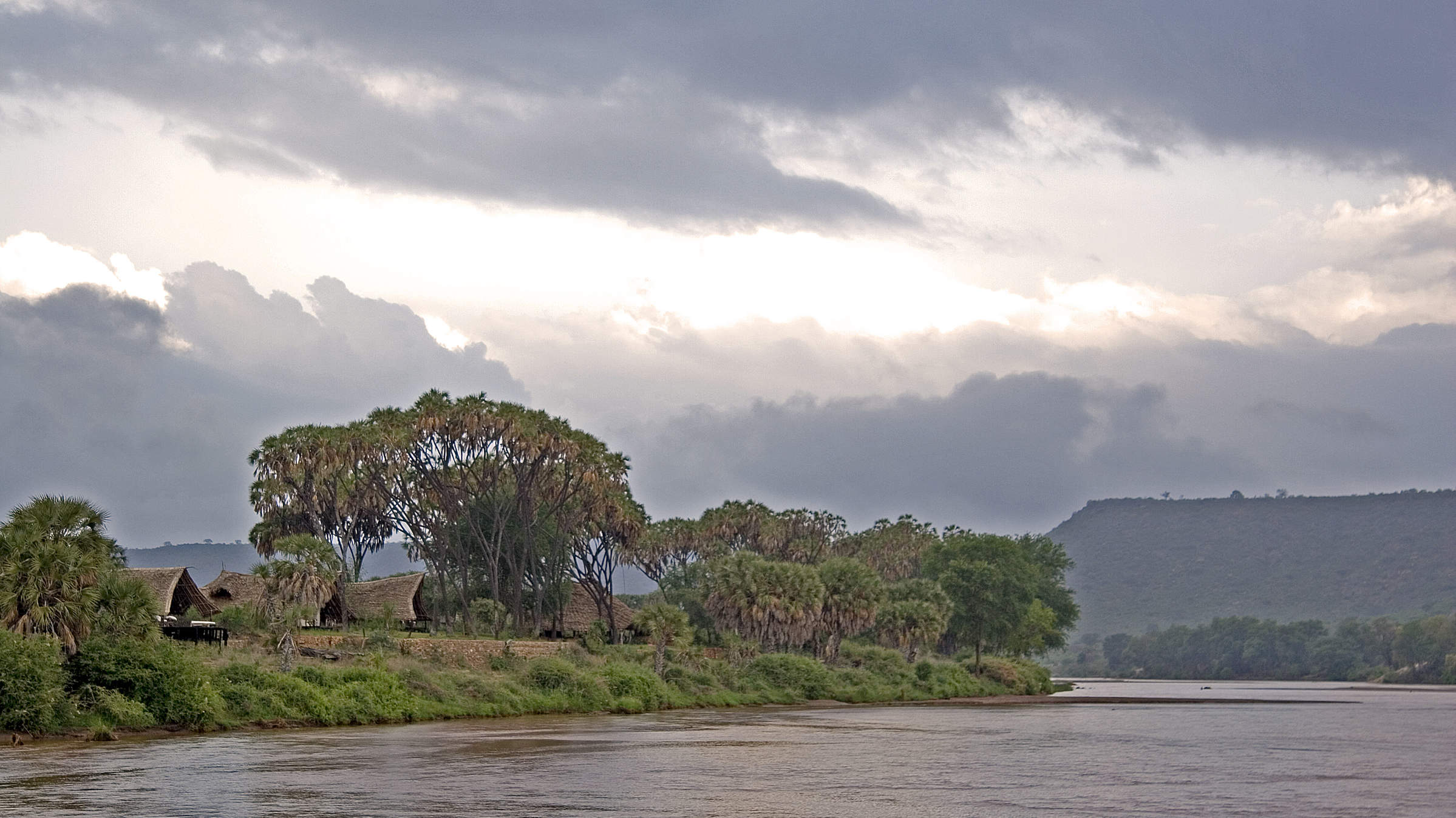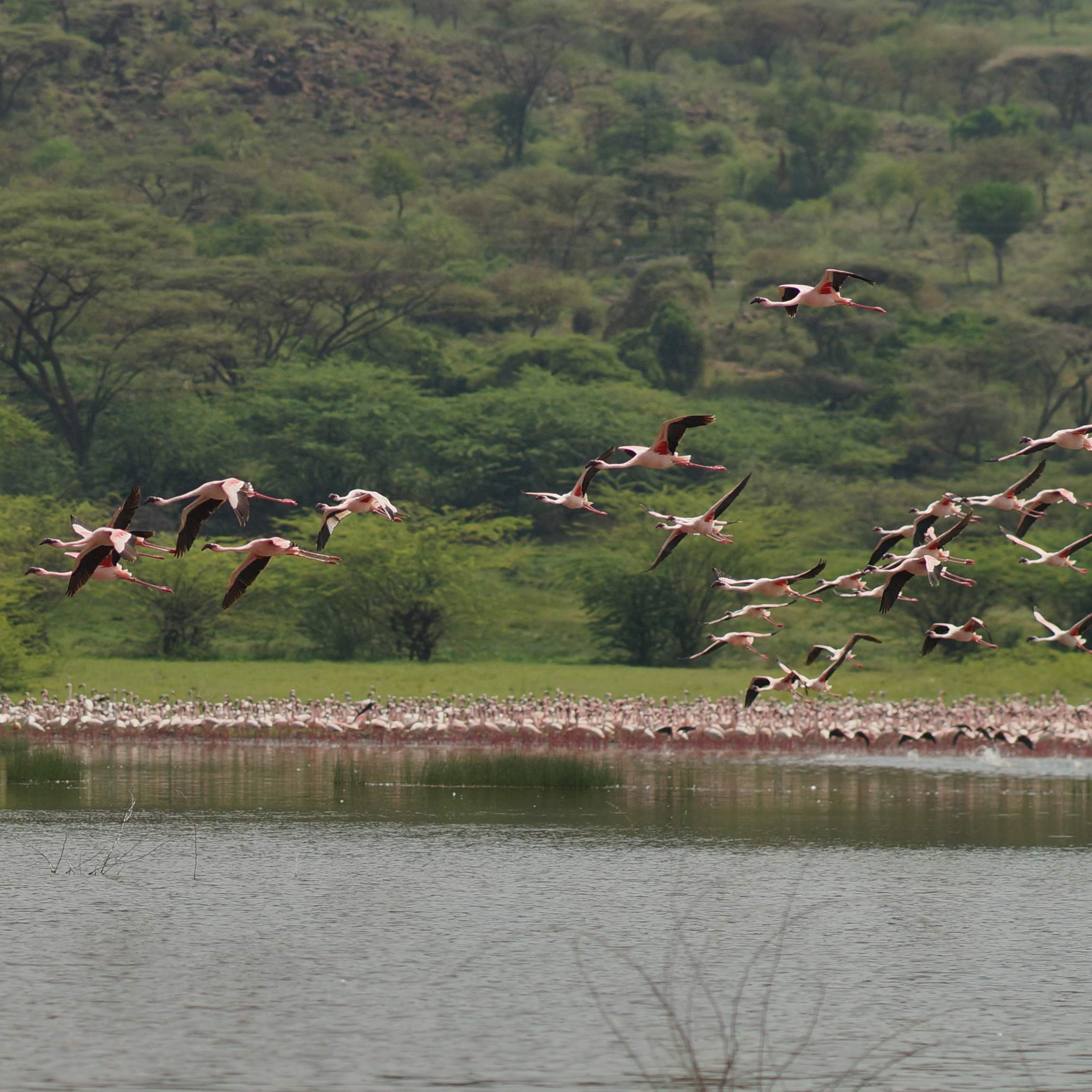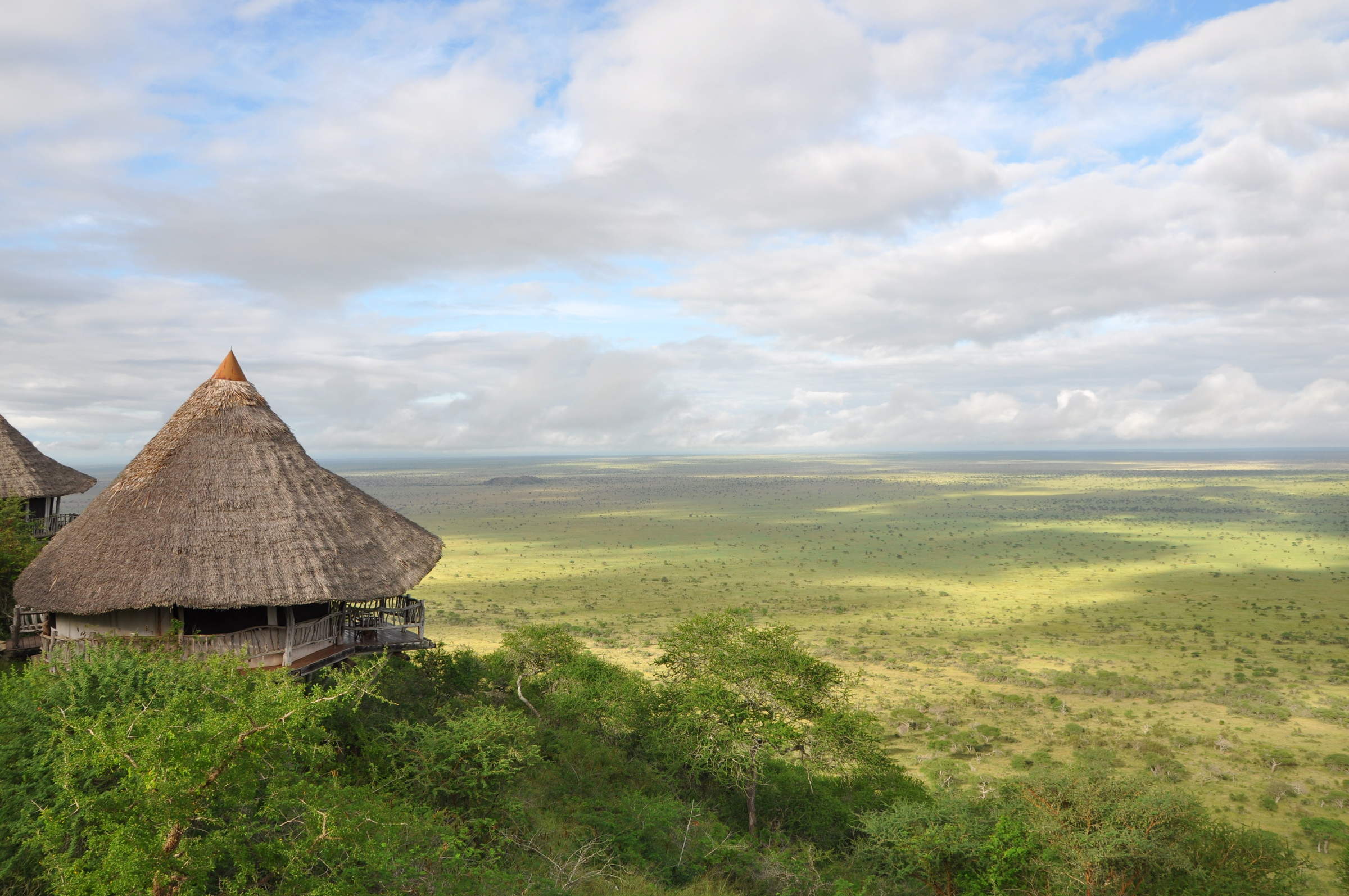Sweetwaters Serena Camp: Our full report
The oldest lodgings in the Ol Pejeta Conservancy, Sweetwaters Serena Camp is a large tented camp in the eastern ...
... sector of the conservancy, catering predominantly to a mid-range, drive-in group safari market. Part of the international Serena Hotels group whose largest shareholder is the Aga Khan Fund for Economic Development, the camp has full hotel facilities.Sweetwaters Serena is one of eight Serena camps, lodges and hotels in Kenya, the most important of which is Mara Serena Safari Lodge in the western part of the Maasai Mara National Reserve.
Approaching Sweetwaters Serena from Nanyuki Airport, first impressions can be somewhat underwhelming as you leave the dusty outskirts of Nanyuki town, clear the formalities at the conservancy gate and drive across an open plain. Ten minutes later you turn into Sweetwaters' grove of acacias and palm trees near the waterhole and the overall impression improves. Set on level terrain, the cool reception and main central building under a red-tiled roof has floor-to-ceiling views through its large windows and French doors onto the conservancy, with the nearby waterhole – illuminated at night – taking centre stage.
Sweetwaters' waterhole is protected by a discreet electric fence and ditch from the camp, effectively bringing the wilds of the conservancy into the heart of the camp, with the tents spread around it in a rough semi-circle. The waterhole attracts plenty of wildlife, including impala, waterbuck, plains zebra and some of the wildlife for which Ol Pejeta is famous – rare Grevy's zebra, reticulated giraffe and occasionally white rhino. While you don't have any elevation from which to watch down on the waterhole, the wildlife that is attracted to it is often quite close to visitors, and the fence means you can approach on foot. At night, floodlights pick out nocturnal creatures, and also attract vast clouds of insects, including some spectacular moths and beetles (fortunately, mosquito controls in this area have largely removed that menace). It's worth bearing in mind that, while the waterhole and wildlife numbers are a big plus, the proximity of Nanyuki town on this eastern side of the conservancy means you can never quite escape the sense of being near an urban area: at night the town lights, and those of the vegetable polytunnel farms on the lower slopes of the mountain, are hard to miss.
There are two styles of guest tents at Sweetwaters – standard tents and deluxe tents. The 39 standard tents (12 doubles and 27 twins) stretch out through landscaped gardens to the north of the central areas, curling around to face the waterhole, while the superior tents, in a row known as the “Morani Wing" stretch around to the east.
The standard tents are fine, reasonably large canvas tents, with solid thatched roofs above and solid ensuite bathrooms behind. There's a small, shaded deck, with directors' chairs and a table, and inside either twin beds or a king-size double, a small writing desk and an armchair, electric lighting and power points. The tiled bathrooms include a conventional flush loo, single basin and a shower behind a curtain. Good towels and toiletries are provided. There's standard plumbing here and 24-hour hot water, so the only concessions to “camping" are the canvas walls of your tent and the fact that you have a conventional zip up tent front. For the best views of waterhole action, the lower-numbered, front room standard tents on the ground are best placed. Those in the second row, to the rear, are mounted on 2-metre high platforms, but views tend to be obstructed by vegetation.
In the Morani Wing, the 17 deluxe tents (seven doubles, eight twins, two triples), spread out to the east of the camp's central area, and are of a much higher standard. Here, despite the use of canvas walls, the sense of being in a comfortable hotel room is even more accentuated. Fully lockable French doors at the front open onto a large tiled deck, though the vinyl-covered armchairs are not what you would expect, and there's a disappointingly utilitarian feel to the decks, with no prettifying touches. Comfy recliners would be a good addition. Inside, however, the tents are bright and warmly furnished in multi-coloured hues, although there is an awful lot of heavy wood paneling, which is an unexpected touch. The rooms have plenty of space, the beds are firm and very comfortable, with high-weave sheets, and the bathrooms have double basins and are fitted out to a reasonably high standard with glass shower doors as opposed to curtains. While the camp perimeter fence runs fairly close to the front of these tents, so wildlife can sometimes be seen quite near, the deluxe tents are all some distance beyond the waterhole and the tents at the far end are a 300-metre (5–7-minute) walk from the dining room and pool.
For wheelchair users there is one adapted superior tent, with wide access and rails, and likewise one standard with ramps. Other superior tents are relatively practical, too. Wheelchairs are also available to borrow. The camp driver/guides are used to having disabled passengers in their vehicles, though these are not adapted.
The main activities at Sweetwaters are morning and afternoon game drives in the Ol Pejeta Conservancy, using the camp's closed Land Cruisers with roof hatches (some guests will be using their own vehicles and some come in group road tours from Nairobi, but Expert Africa's tailor-made safaris in Laikipia invariably use the airport at Nanyuki and the camp's own vehicles). Game drives around the well-managed and densely wildlife-populated conservancy are invariably productive and rewarding. White rhinos are almost always easily seen, while the much more numerous black rhinos tend to be elusive and skittish, with sightings more fleeting.
Bush walks are easy to organize, go direct from camp and return after a loop through the bush, and are accompanied by a scout and a licensed gun-holding guide. You can get relatively close to the white rhinos on these, though black rhinos, elephants and big cats are deliberately avoided.
In common with all the camps on Ol Pejeta, you'll be offered the option of visiting the “Endangered Species Boma" – a large, secure paddock for the conservancy's two female northern white rhinos (extra charge of U$50 per person) and the Chimpanzee Sanctuary, a welfare facility (rather than a breeding and conservation project) for previously captive and orphaned chimpanzees from other parts of Africa. We recommend the visit to the northern whites, which allows you to get very close to the last two remaining individuals of this subspecies, and also includes close sightings of Jackson's hartebeest and Grevy's zebra, and the chance to pay your respects to the blind black rhino Baraka.
Back at camp, the small swimming pool is an attractive magnet and close to the dining room and bar. There are plans for the pool to be extended, more in-keeping with the size of the camp. There's also a small spa and beauty treatment centre.
Unusually, Sweetwaters Serena has no tip box in reception. A tip can be added to your final drinks and extras bill and will be shared among the staff.
Our view
This is a reasonably comfortable and secure option for a stay at Ol Pejeta, and we think it's particularly suitable for young families and some first-time visitors new to the safari experience. With its consistent standards and pleasant, landscaped environment it doesn't feel too different from a country retreat hotel. The waterhole attracts plenty of wildlife and Mount Kenya is often visible – as are the lights of Nanyuki town, just a few kilometres away.
Geographics
- Location
- Laikipia, Kenya
- Ideal length of stay
- 2–3 nights
- Directions
- 21km (25mins) to Nanyuki Airport.
- Accessible by
- Fly-and-Transfer
Food & drink
- Usual board basis
- Full Board
- Food quality
- Hotel-style meals are offered with a reasonable range of choices, usually at least partly as a buffet. When we last visited in 2019, we didn’t get a chance to sample the food, but during a previous stay, lunch started with a good, creamy vegetable soup. The lunch buffet included lots of salads, black bean curry, nice grilled fillets of red snapper, tough slices of steak in a nondescript gravy and some local choices, like butternut squash with githeri (Kikuyu bean and corn stew).
Dinner was a Mongolian-style barbecue (sliced raw meat and vegetables, stir-fried and sizzled to order).
Breakfast was a copious buffet. - Dining style
- Individual Tables
- Dining locations
- Indoor Dining
- Further dining info, including room service
- Breakfast is served from 06:30-08:30, lunch from 12:30-14:30 and dinner from 19:30-21:00. Tea and coffee are available all day long and there's a wake-up service with tea or coffee and cookies from 06:00 and afternoon tea with cookies at 16:00. Room service is available at no extra charge.
- Drinks included
- Bottled drinking water is provided in rooms. Water and additional drinks at the bar are extra but reasonably priced. Local beers or a glass of South African wine cost around U$5.
Children
- Attitude towards children
- Sweetwaters welcomes children of all ages. 6 year olds and below stay free of charge.
- Property’s age restrictions
- None.
- Special activities & services
- Children’s menus and early dinners are available.
Babysitting (by ladies from housekeeping) can be arranged. There is no formal payment rate, but a tip is expected. - Equipment
- Baby cots and high chairs are available.
- Generally recommended for children
- Sweetwaters is a safe and dependable choice for younger families and the atmosphere is informal and busy enough to avoid any sense that your offspring might be disturbing others.
- Notes
- Children can freely roam the grounds inside the electric fence. Little ones would obviously need supervision, and bear in mind that bushbuck and waterbuck also roam the grounds. Bushbuck are medium-sized, timid and essentially harmless antelope (think “roe deer") but waterbuck are a much larger antelope and can very occasionally be aggressive (think “cow"). The camp's security staff generally keep animals in control, and a baboon chaser is stationed at the end of the standard wing to keep those pesky primates in check.
Our travellers’ wildlife sightings from Sweetwaters Serena
Since mid-2018, many of our travellers who stayed at Sweetwaters Serena Camp have kindly recorded their wildlife sightings and shared them with us. The results are below. Click an animal to see more, and here to see more on our methodology.

100% success

0% success

0% success

0% success

0% success

0% success

0% success

0% success

0% success

0% success

0% success

0% success

0% success

0% success

0% success

0% success
Communications
- Power supply notes
- Electricity is provided by the National Grid. There is also solar power with two back-up generators so electricity is available 24 hours a day. Hairdryers are provided in rooms.
- Communications
- Airtel and Safaricom signals are good. There is free Wi-Fi throughout the lodge.
- TV & radio
- There are TVs (DSTV sallelite channels) in the guest common room.
- Water supply
- Borehole
- Water supply notes
- Borehole water is treated in their own treatment plant. Bottled water for drinking is provided to all guests in their tents on a daily basis. This is usually one half-litre bottle per guest per day. Extra bottles may be provided on request, but the camp clearly expects most guests to buy water with meals.
Health & safety
- Malarial protection recommended
- Yes
- Medical care
- A nurse is available on site at all times. First-aid kits are available. In addition, Nanyuki Cottage Hospital is very good – one of Kenya’s best outside Nairobi. In an emergency, a helicopter could land easily at Sweetwaters.
- Dangerous animals
- Moderate Risk
- Security measures
- There is 24-hour security around the camp. In addition, Ol Pejeta has armed Kenya Wildlife Service rangers.
- Fire safety
- Every tent has a fire extinguisher and smoke detector. Staff do fire drills every three months and fire training every six months.
Activities
4WD Safari
Birdwatching
Guided walking safari
Night drive
Private activities
Extras
- Disabled access
- In Place
- Laundry facilities
- Laundry is available as an extra service, priced by the item, machine washed, tumble-dried and ironed.
- Money
- There’s a guest safe and forex service at reception.
- Accepted payment on location
- All major currencies are accepted, as are Mastercard, Visa and Amex with no surcharges.
Other lodges in Laikipia
Alternative places to stay in this same area.
